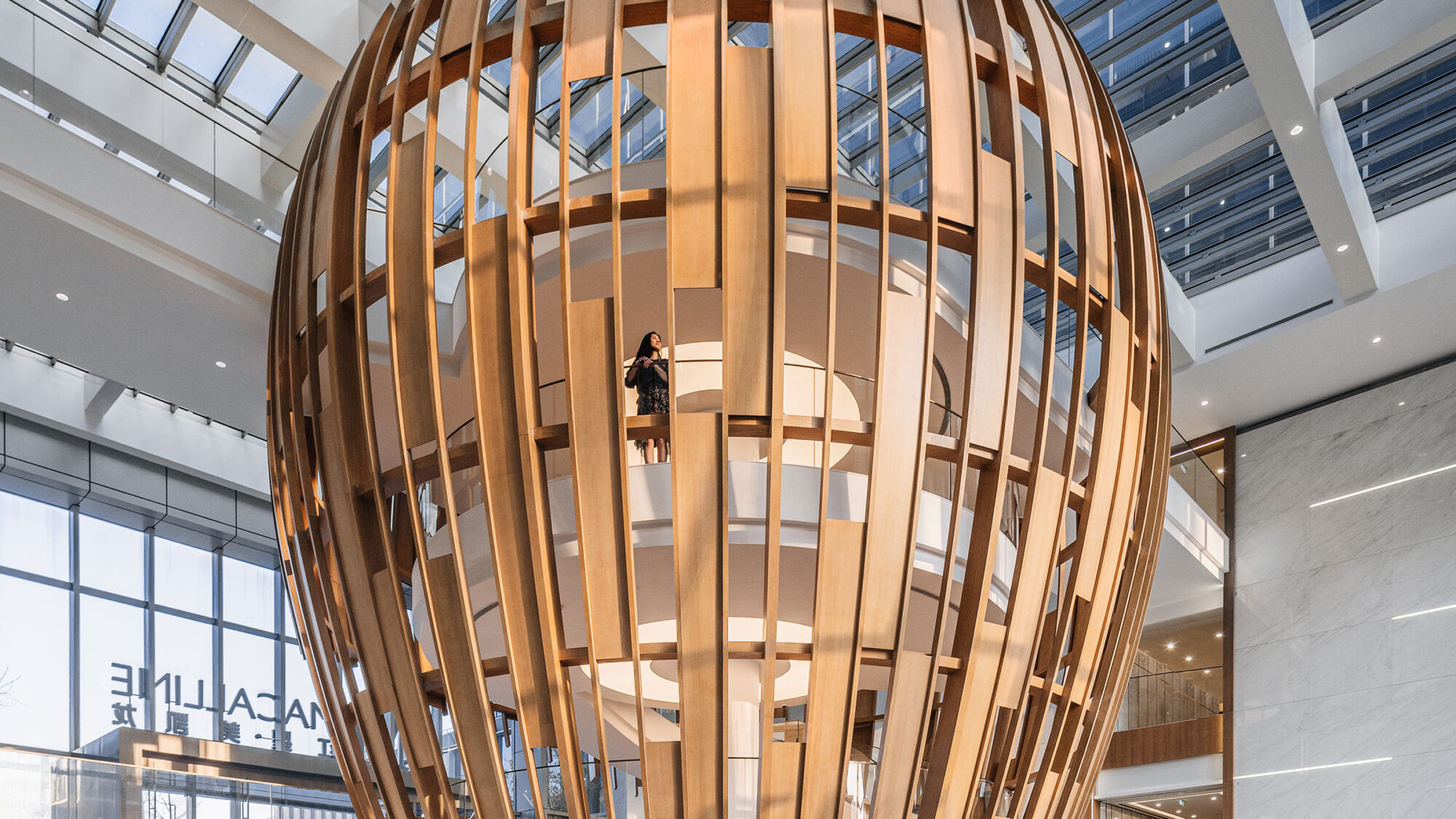

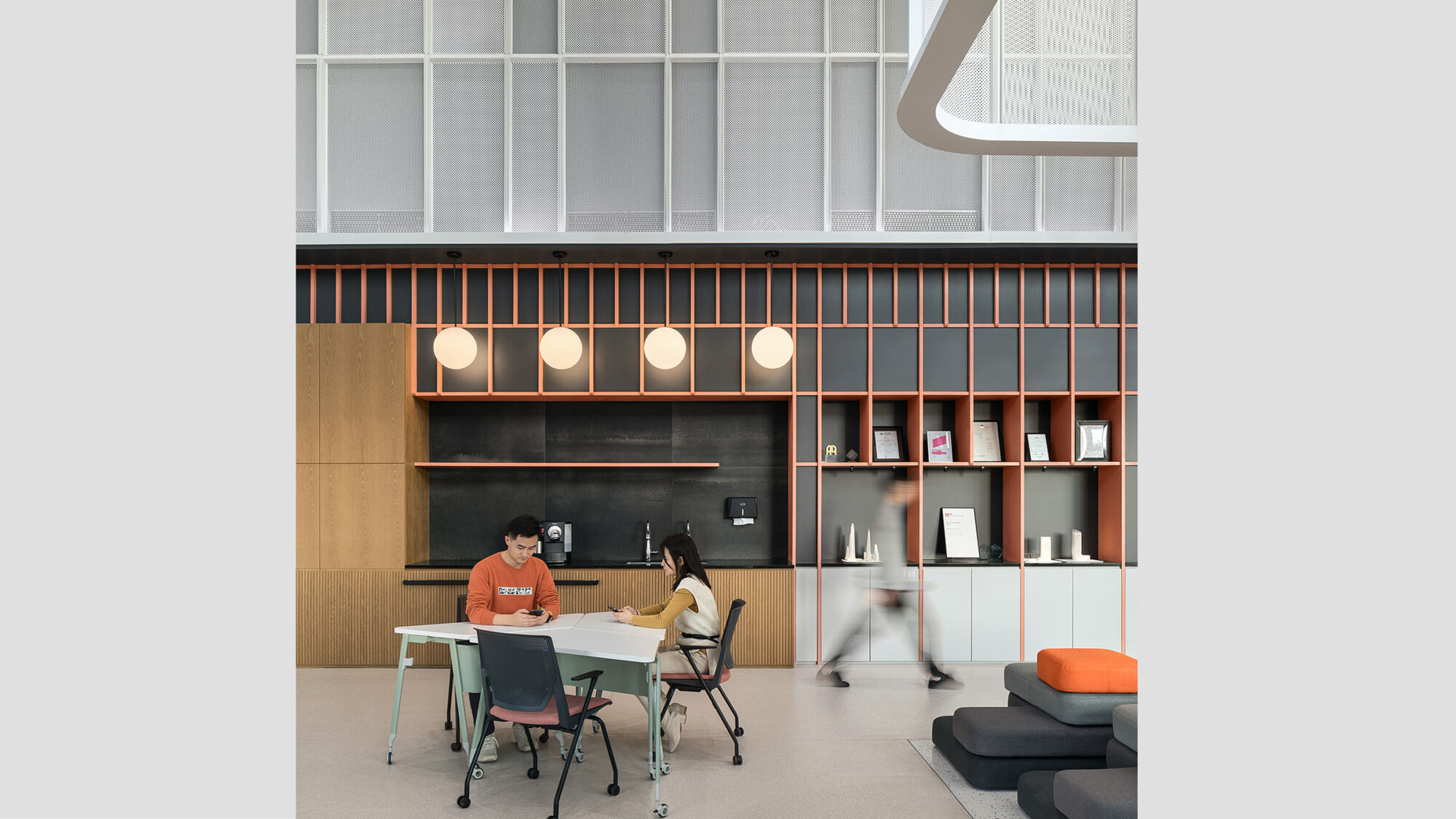
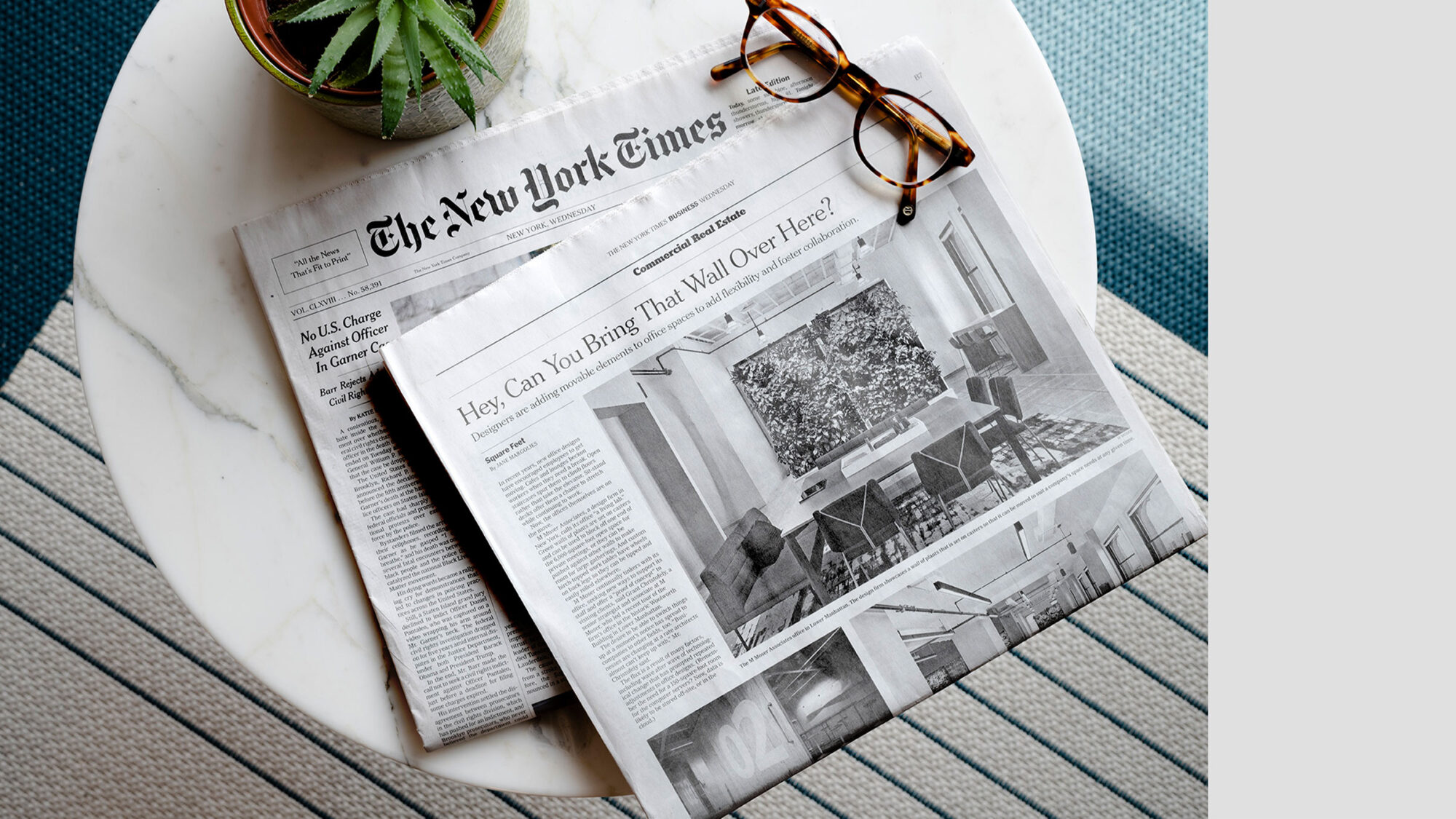
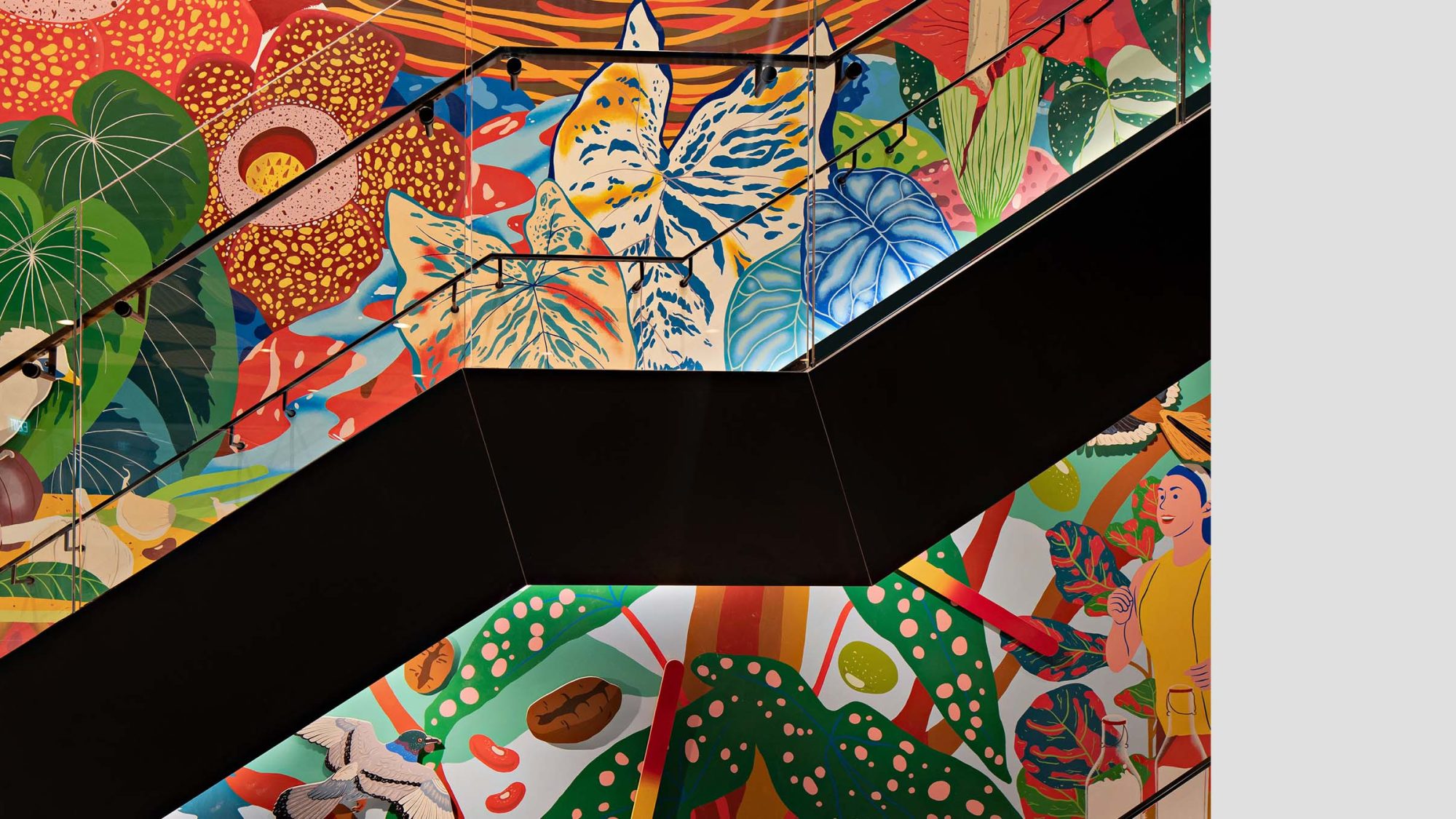
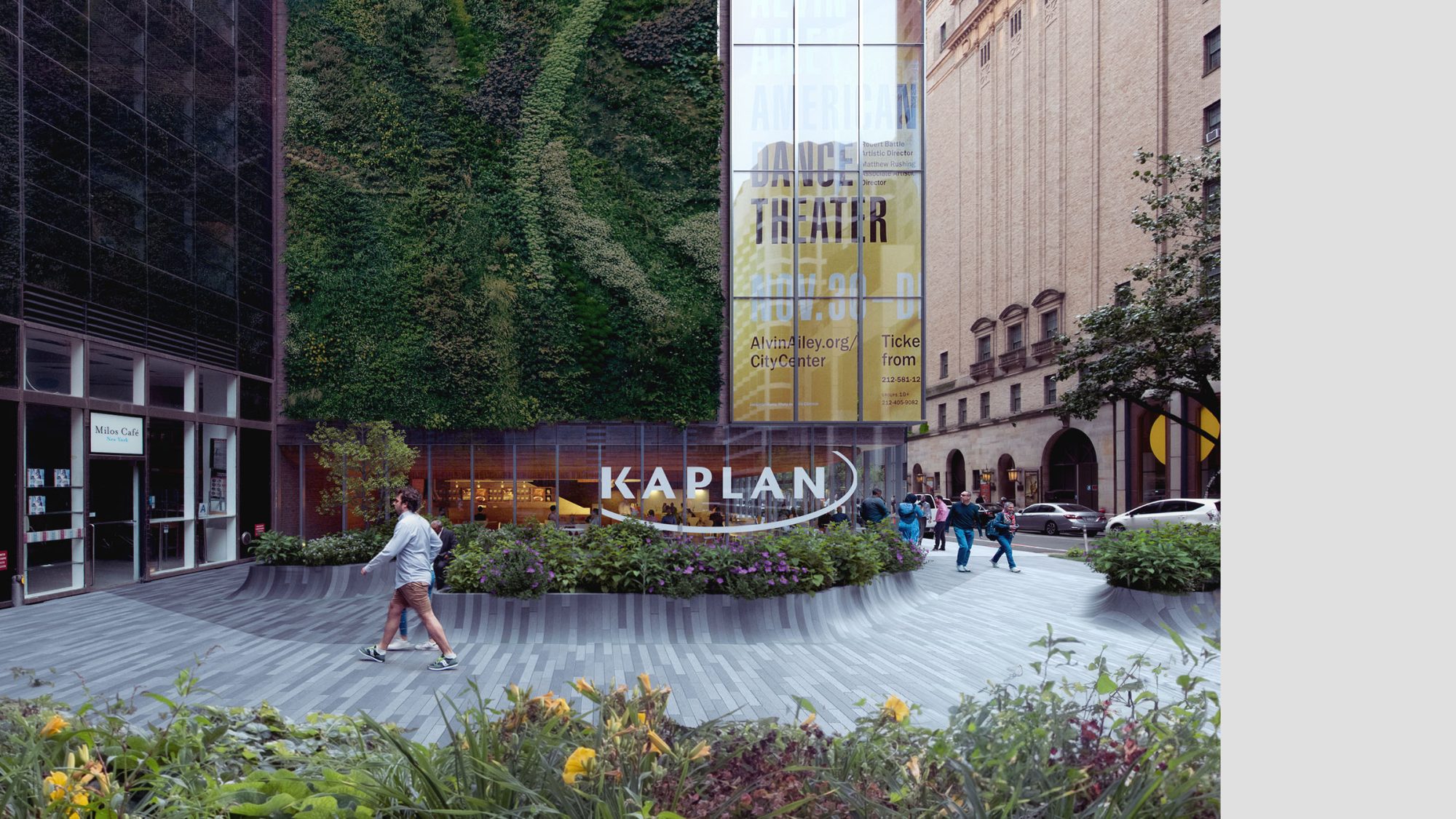
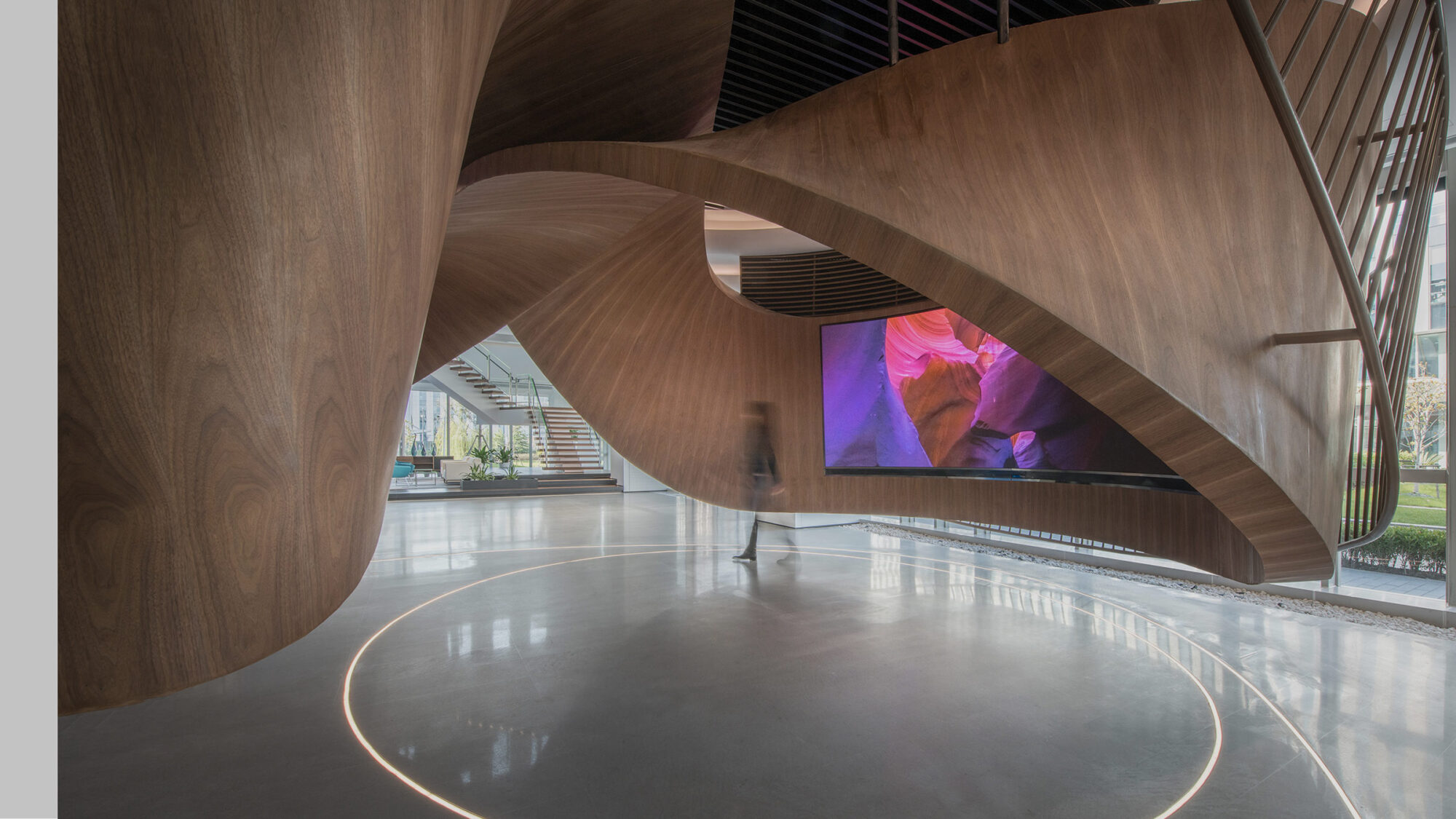
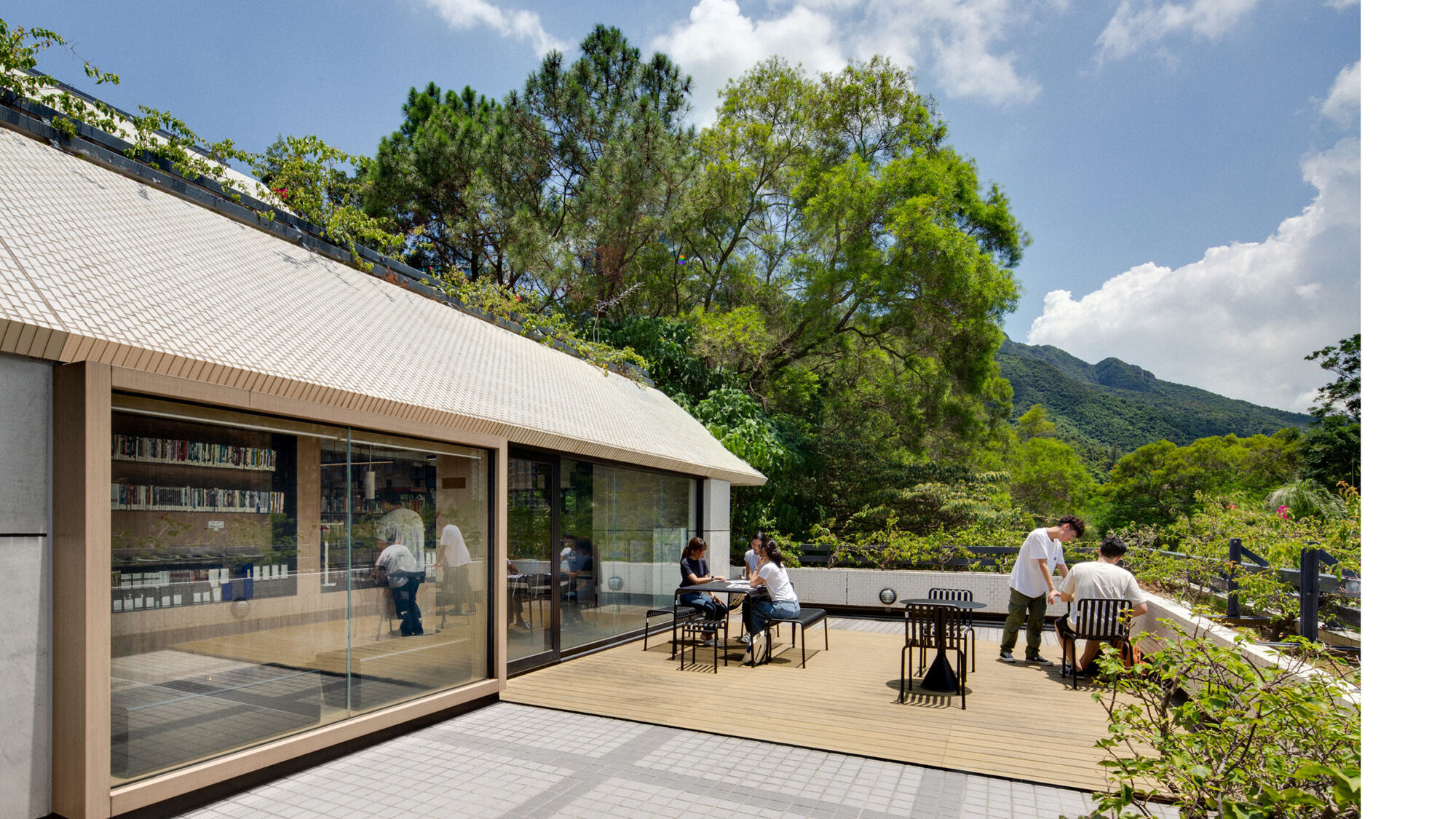
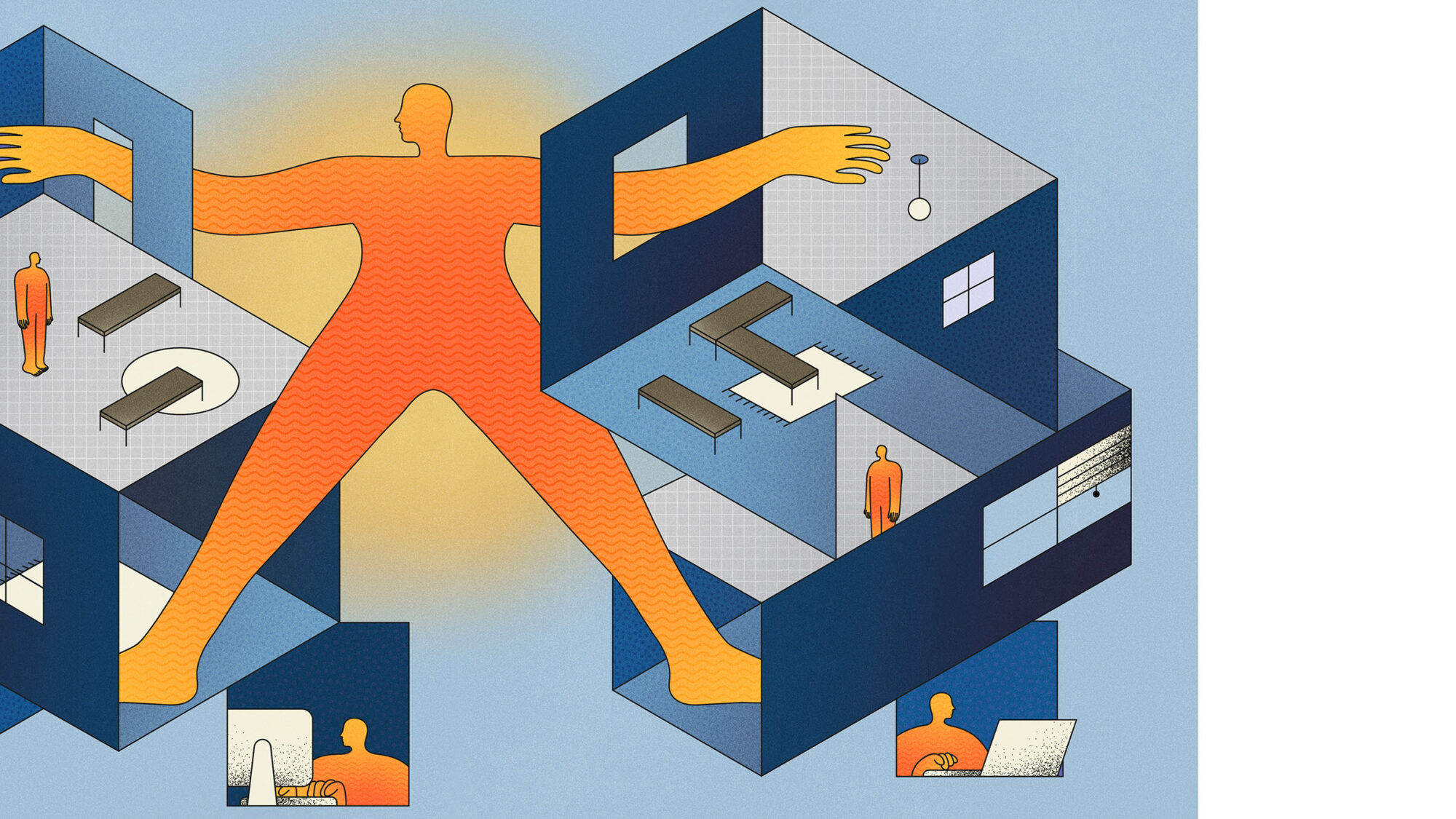
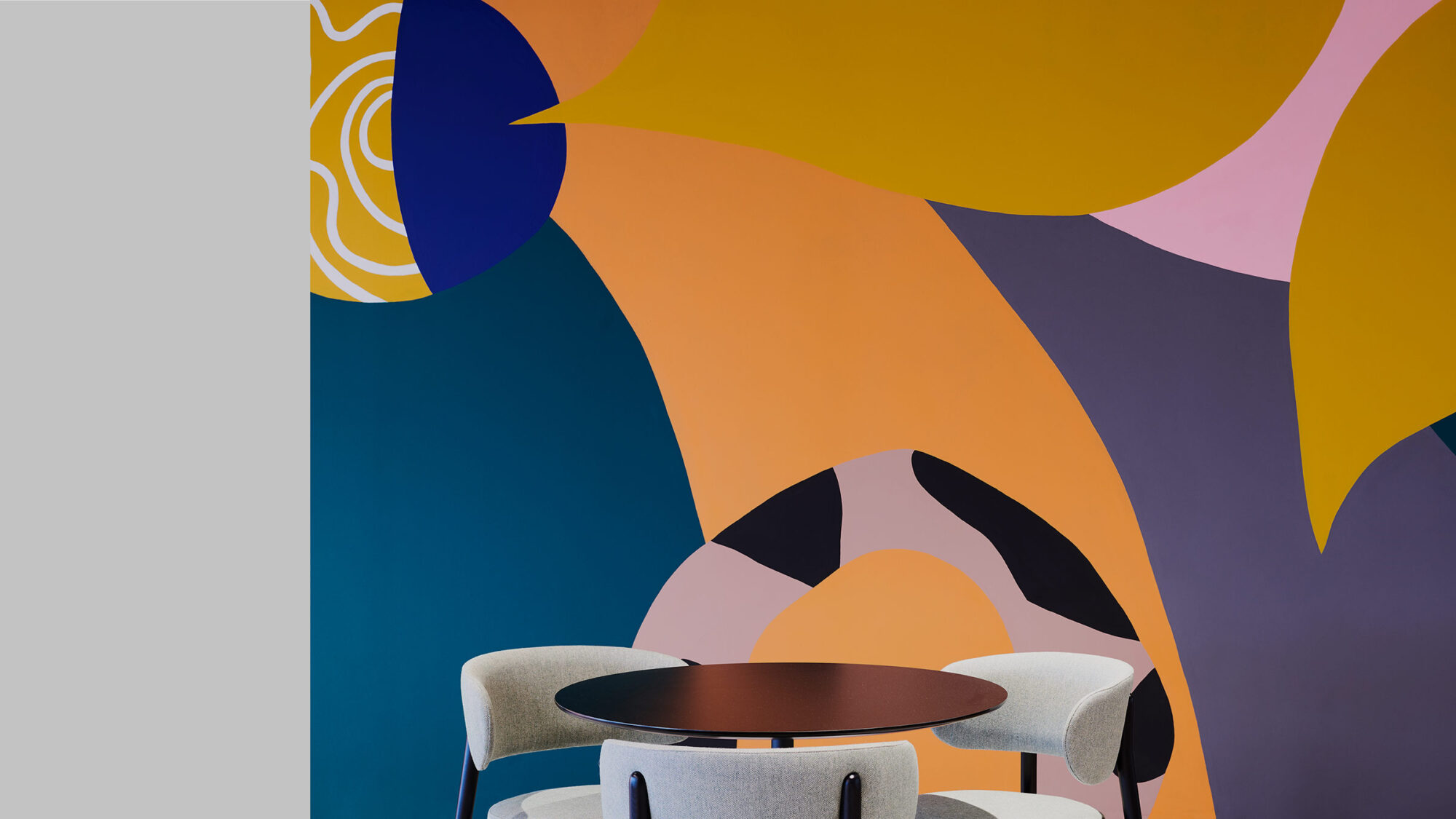
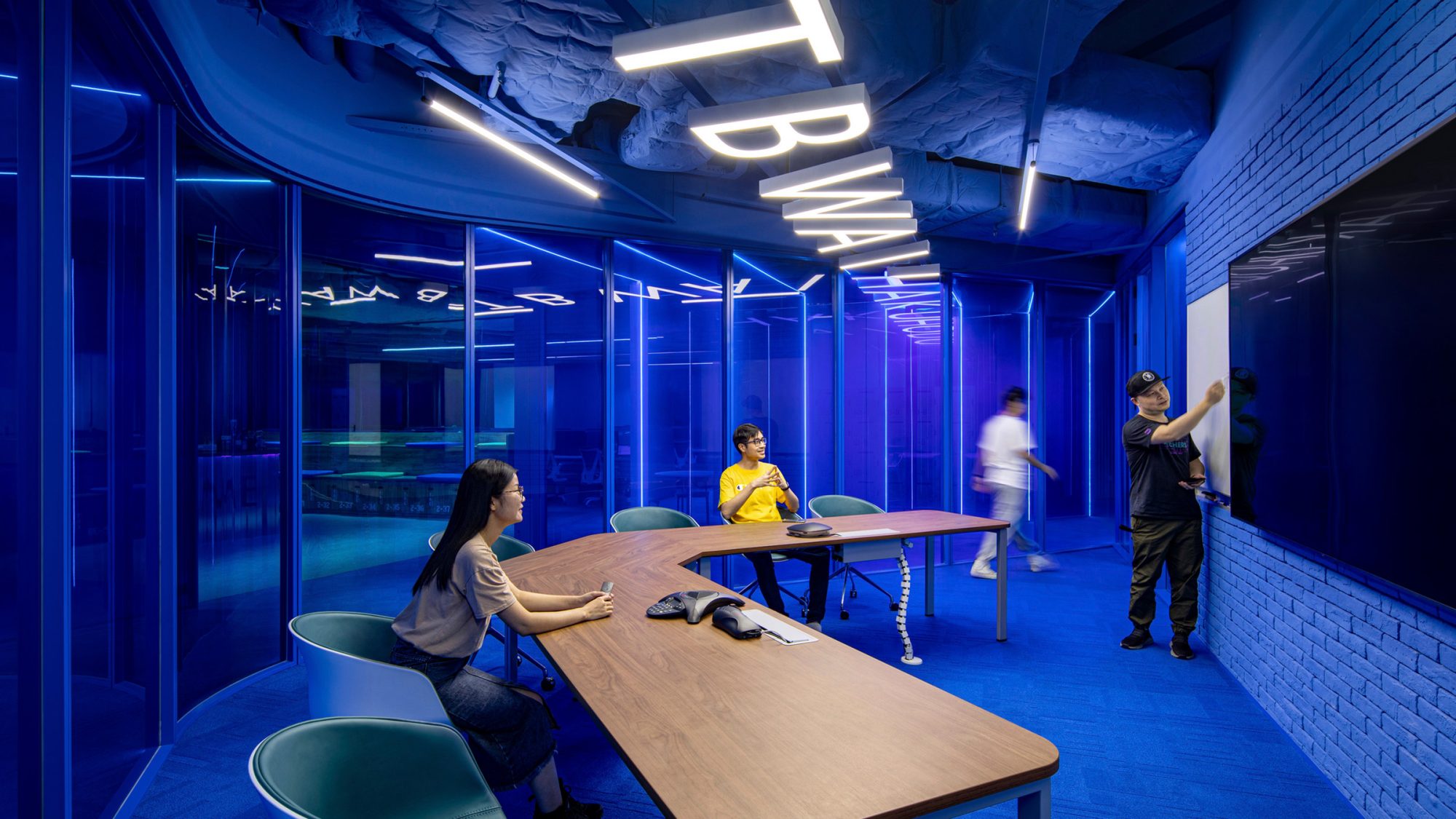
Are you looking for office design ideas for collaborative spaces? This guide covers a variety of workspace setups tailored to meet all your collaboration needs.
A collaboration space is a dedicated area within an office where team members can gather to brainstorm, share ideas, solve problems and work towards common goals. These spaces are essential for fostering teamwork and driving innovation in modern workplaces.
Workplace collaboration is vital for most knowledge-based roles in today’s professional environment. Employees often specialise in specific fields, much like athletes on a sports team. While individual efforts may be limited, collective collaboration can tackle complex problems involving many moving parts.
Although the office’s function has evolved, its importance has not diminished. Many companies are eager to bring employees back into the office, where in-person interactions can spark new ideas and enhance innovation. A well-thought-out London office design can play a crucial role in achieving this.
Effective office design ideas recognise that collaboration has its rhythm and that being together offers significant benefits. However, it’s equally important to provide opportunities for focused individual work or smaller group discussions to minimise distractions.
Striking the right balance between areas designed for concentration and spaces for active workplace collaboration can greatly enhance employee satisfaction. Offering diverse collaboration spaces ensures that everyone can find a spot that suits their collaborative style.
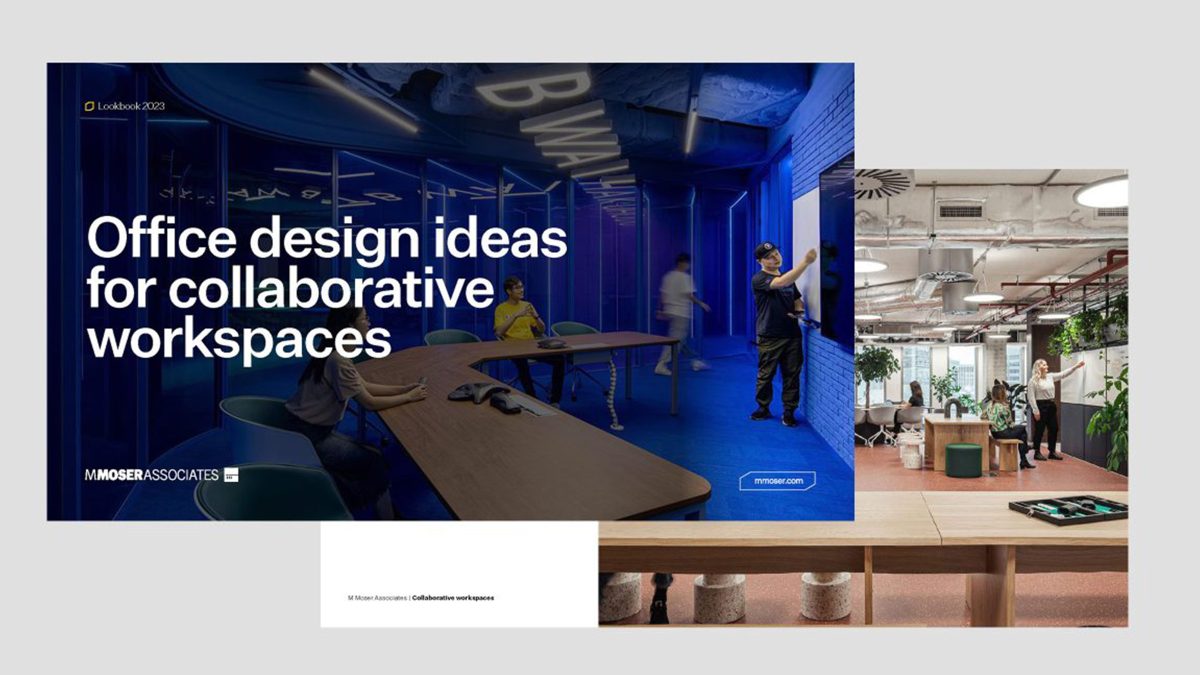
For further inspiration, download our lookbook, which showcases a wide array of office collaboration space ideas.
Modern offices rarely need to be filled with uniform rows of desks. Instead, businesses should consider how to maximise the time employees spend in the office. Here are some creative office interior design concepts for collaborative workspaces inspired by our recent projects:
Being outdoors boosts focus and reduces stress, making it an excellent setting for work discussions. If outdoor spaces aren’t available, incorporating walking meetings can be a great alternative, adding variety to your London office design.
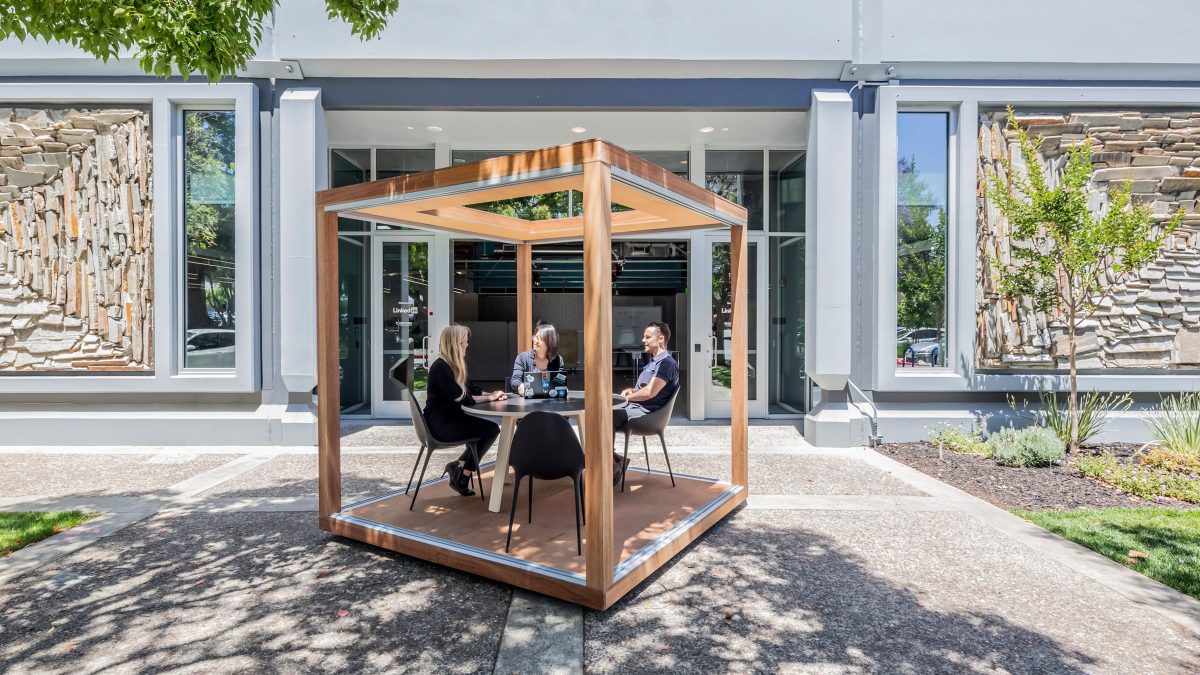
A theatrical setup is ideal for presenting your next big idea. These spaces capture attention and encourage participation. A circular stage, for instance, fosters audience engagement by creating an intimate environment that makes sharing ideas easier.
If your presentation relies heavily on visual aids, a more traditional setup, with the audience facing the presenter, may be more effective. It’s also beneficial to have flexible seating to accommodate additional attendees as needed, fitting seamlessly into any office interior design plan.
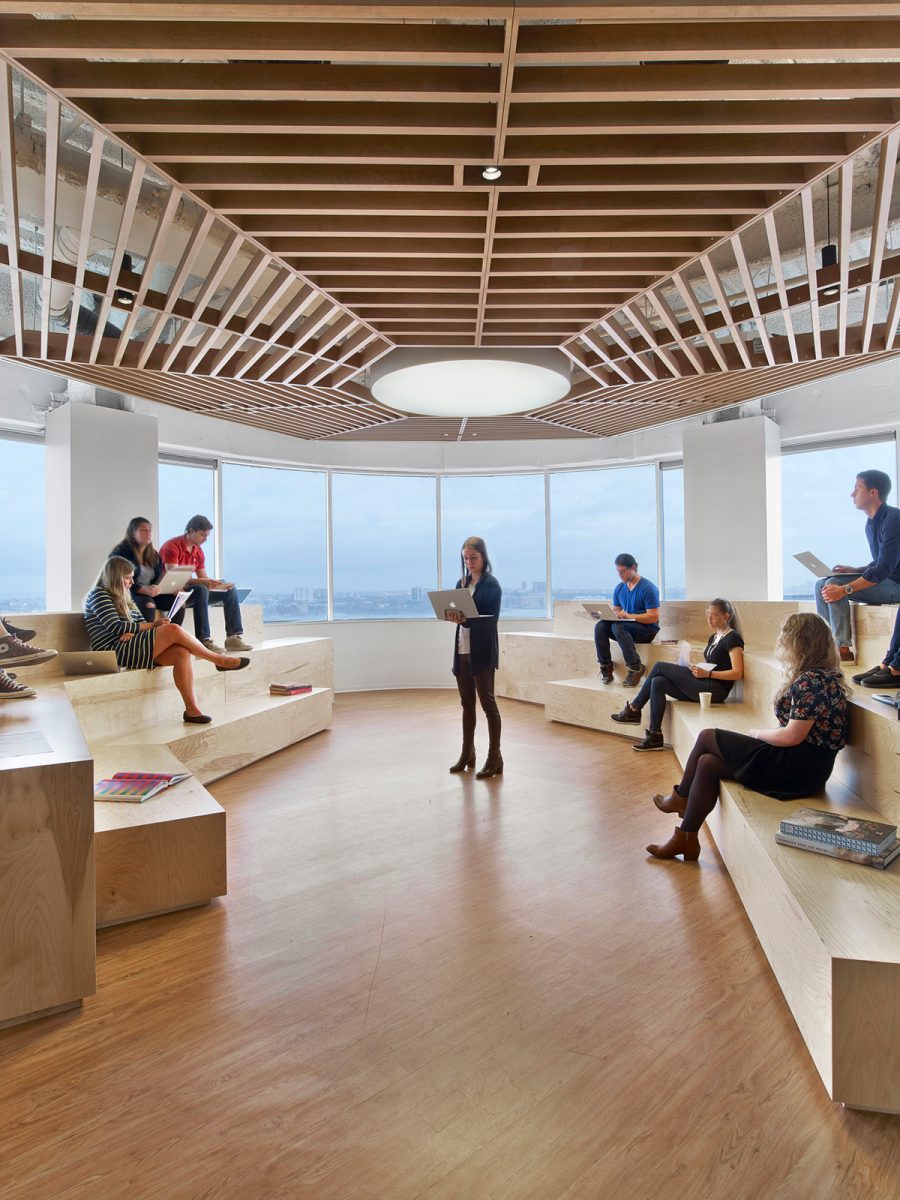
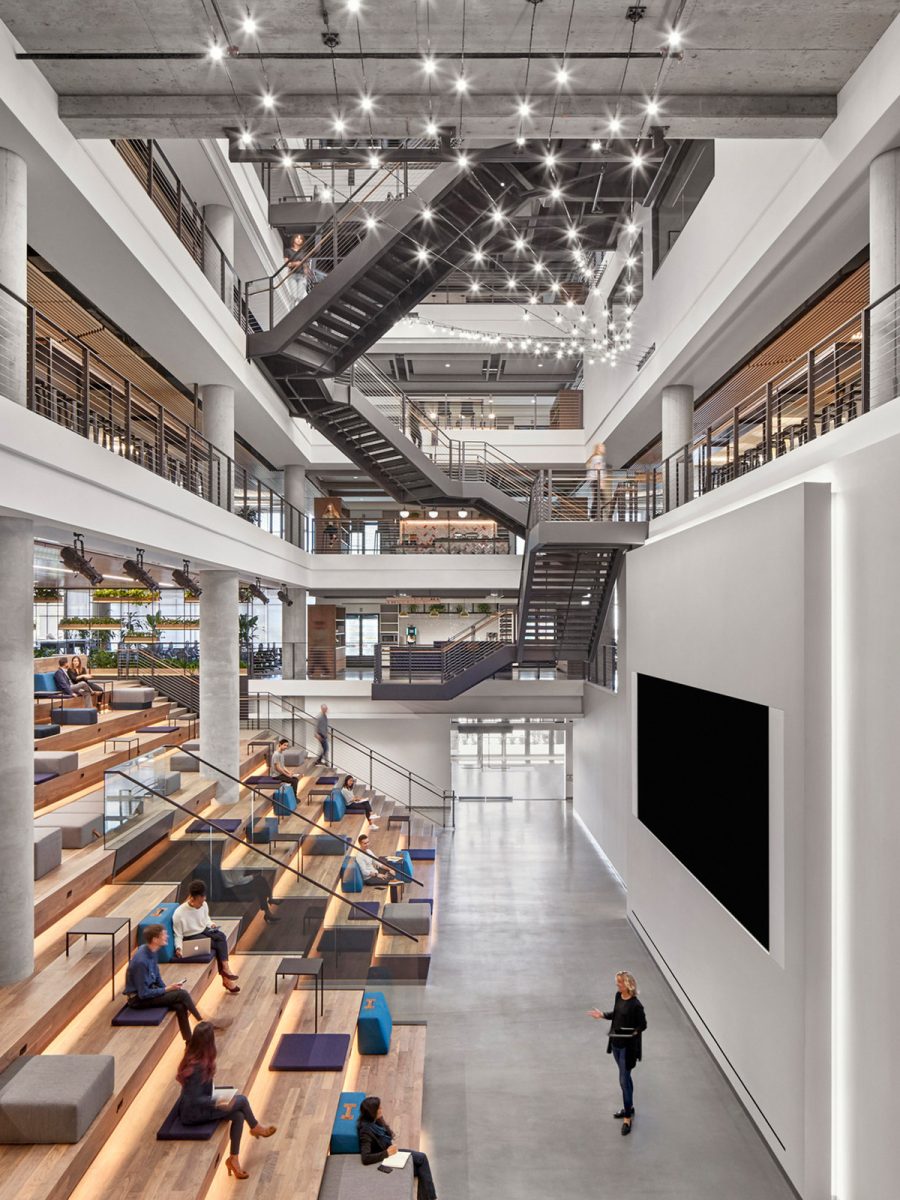
While cafes and teapoints might focus more on building community than direct workplace collaboration, they play a crucial role in fostering relationships. The lively atmosphere of a cafe can energise employees and help build connections. Whether large or small, these areas should be designed to encourage casual interactions, impromptu meetings and social events. Many interior designers in London specialise in creating inviting communal areas that enhance the overall office experience.
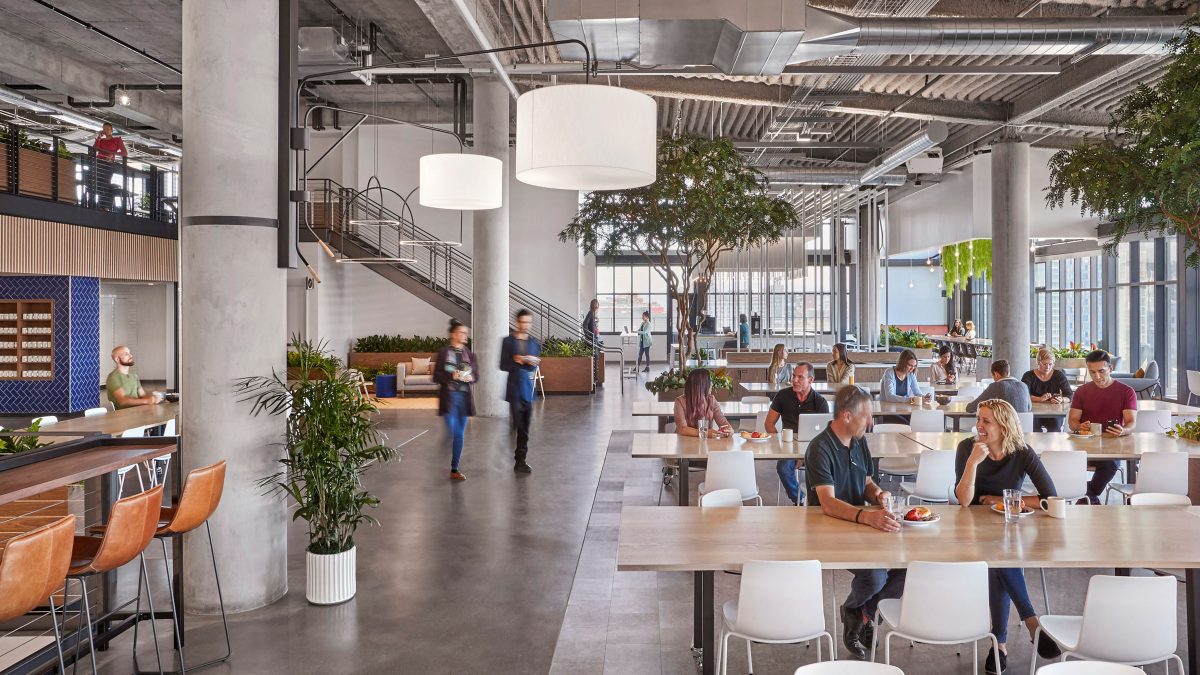
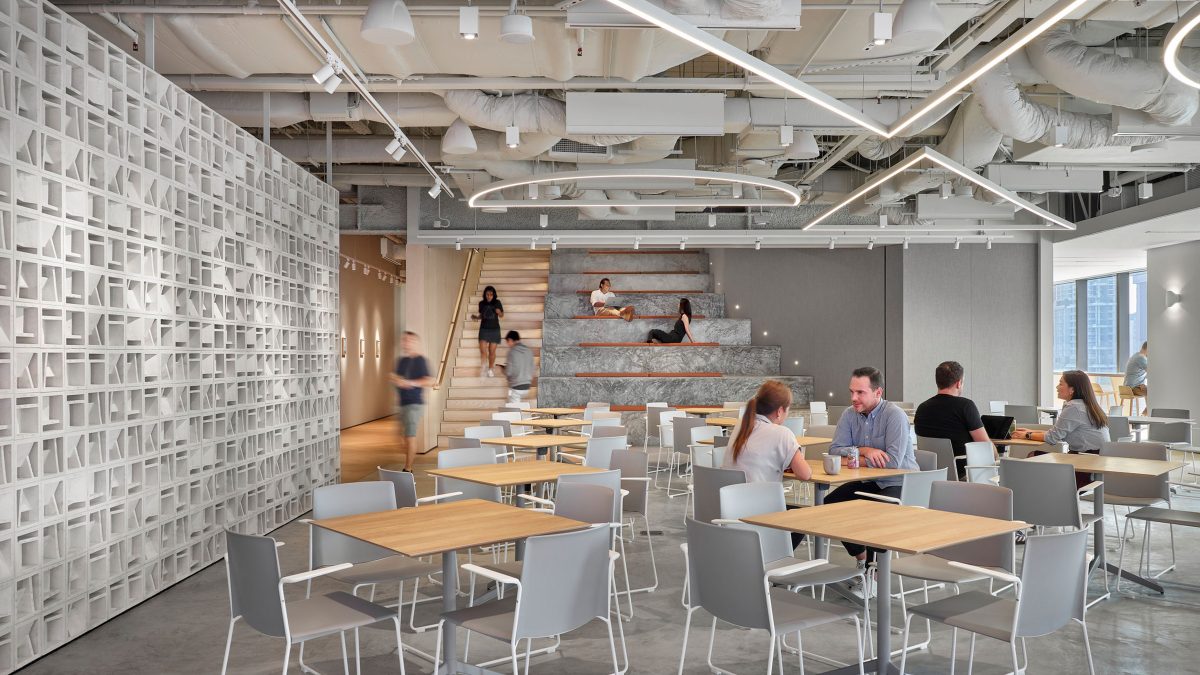
Flexibility is a hallmark of modern offices. Many clients find that offering various pre-set layouts encourages teams to use adaptable workspaces. This approach allows teams to select the best setup for their needs without starting from scratch.
For instance, a recent project for a media conglomerate featured office interior design elements that allowed for product displays, group activities and quick breakout sessions, showcasing the versatility of adaptable spaces.
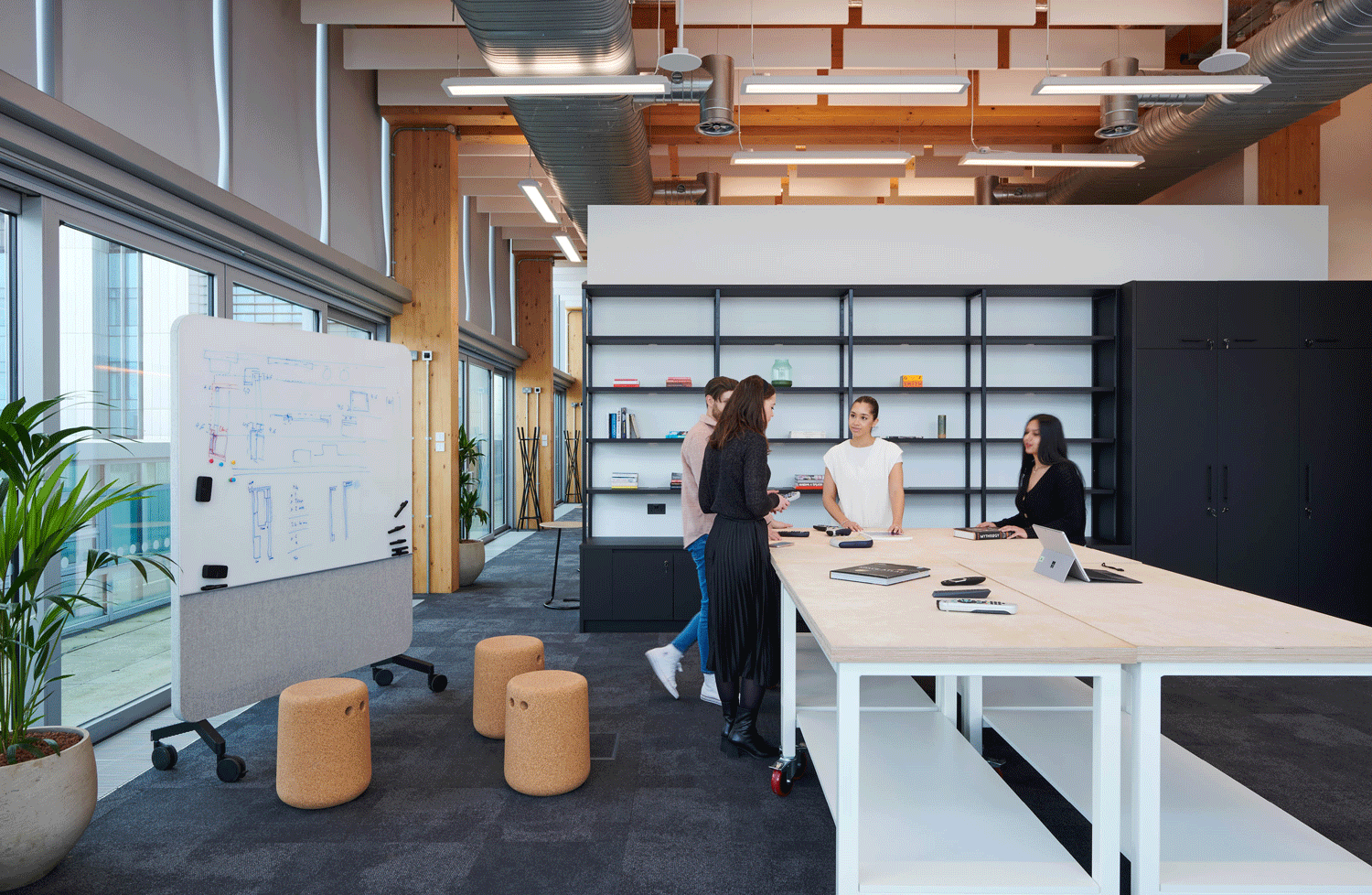
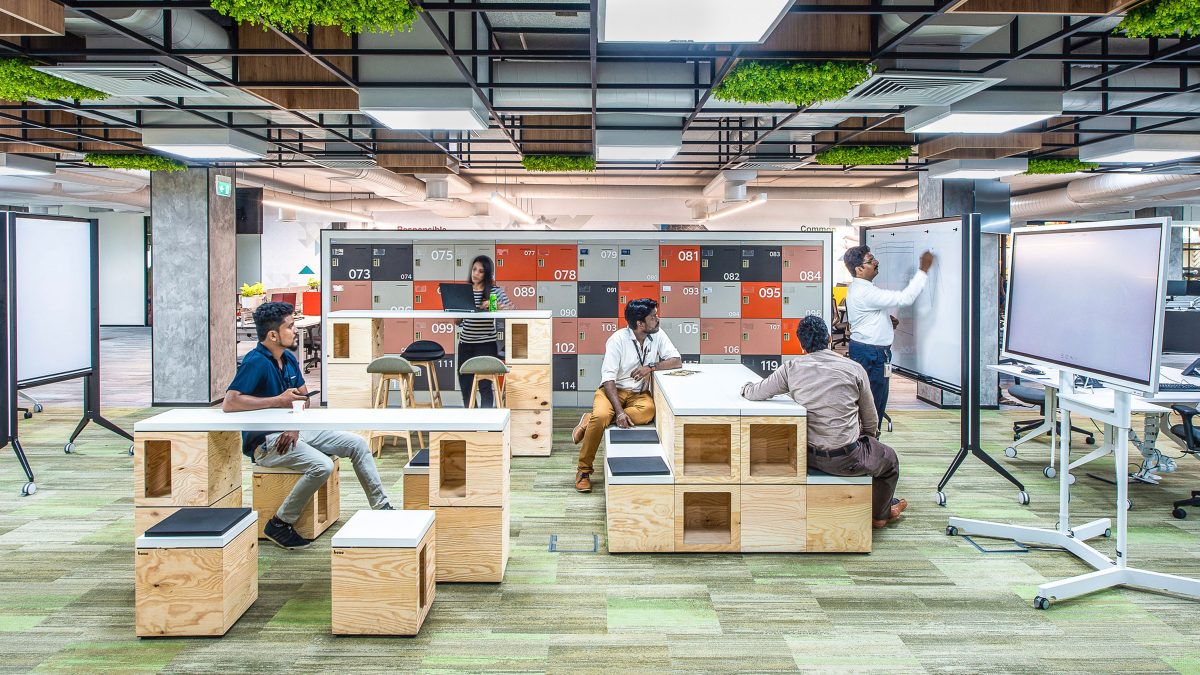
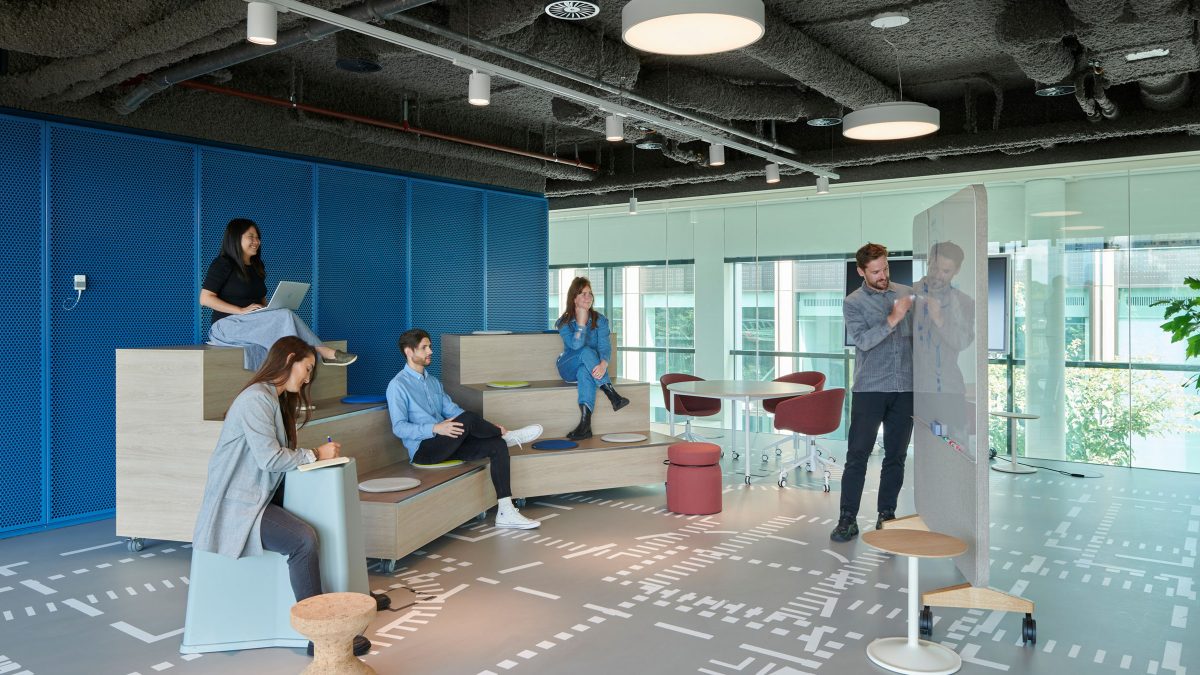
Areas between key office locations are ideal for spontaneous meetings. If you’re looking for office design ideas for impromptu discussions, consider adding small seating areas along main pathways. For example, spaces between the open office area and the cafe can facilitate informal conversations. Staircases can also serve as dynamic connectors between floors and teams, encouraging casual interactions.
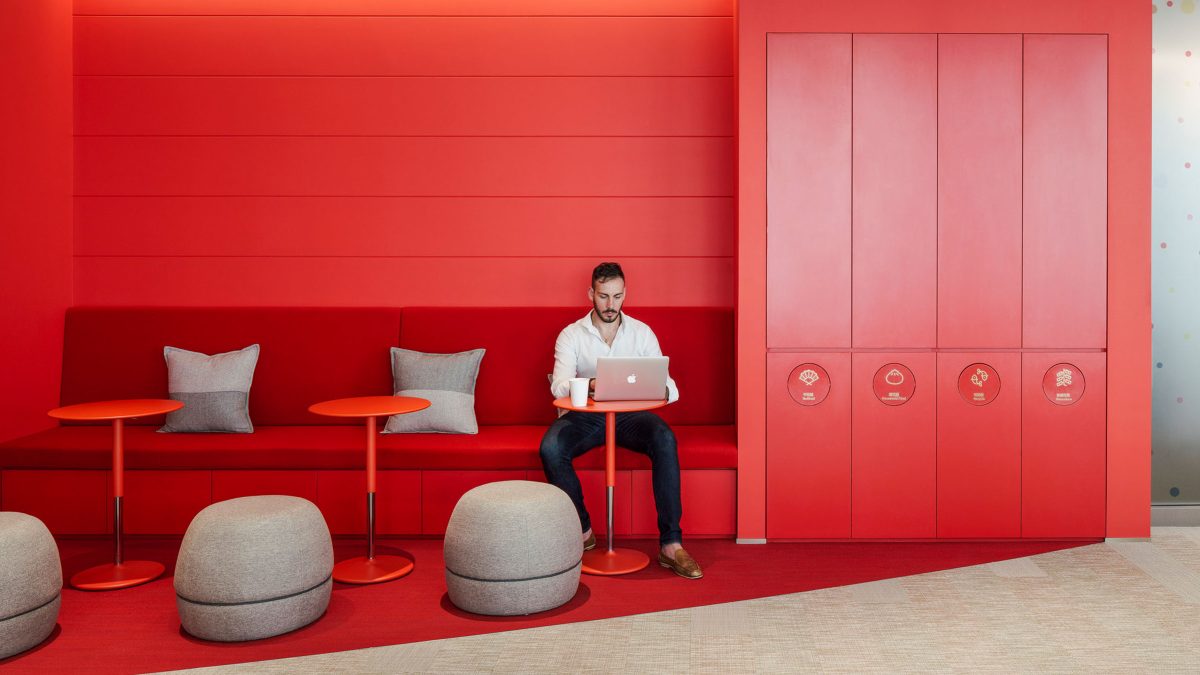
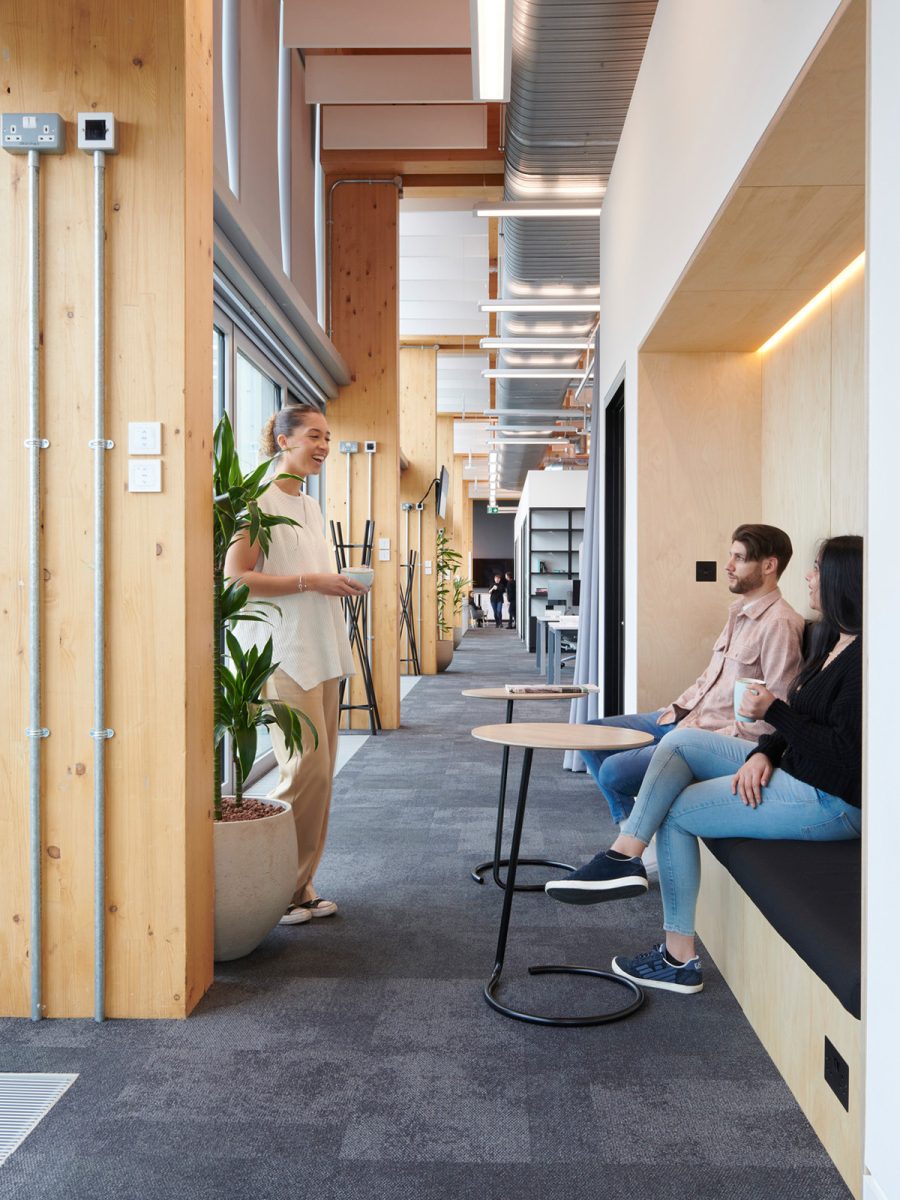
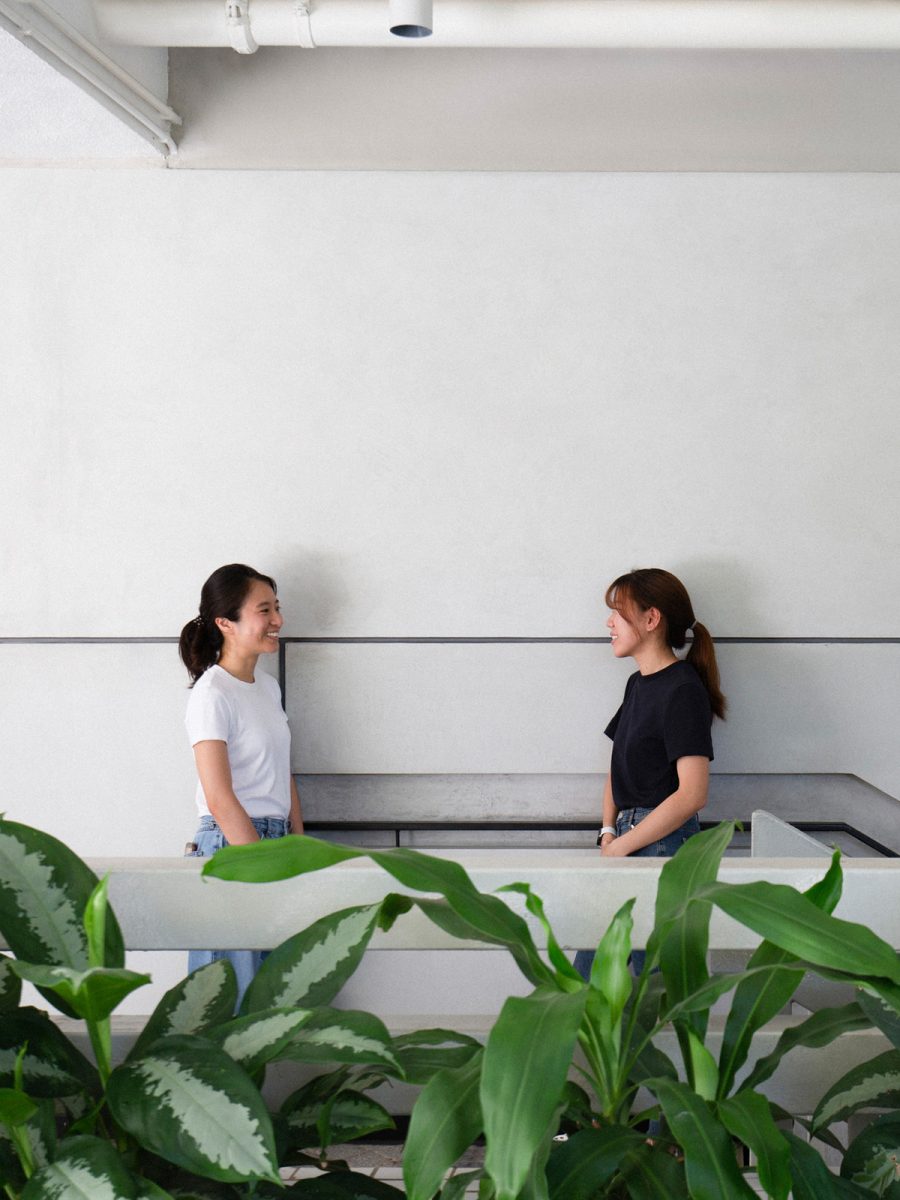
A lounge is often the heart of a home and can play a similar role in an office setting. Known for its comfort and ability to make people feel at ease, a work lounge is a versatile space where employees can relax, hold casual meetings or enjoy spontaneous moments. When integrating lounges into your office interior design, consider how they complement nearby work areas and add rhythm to the overall layout.
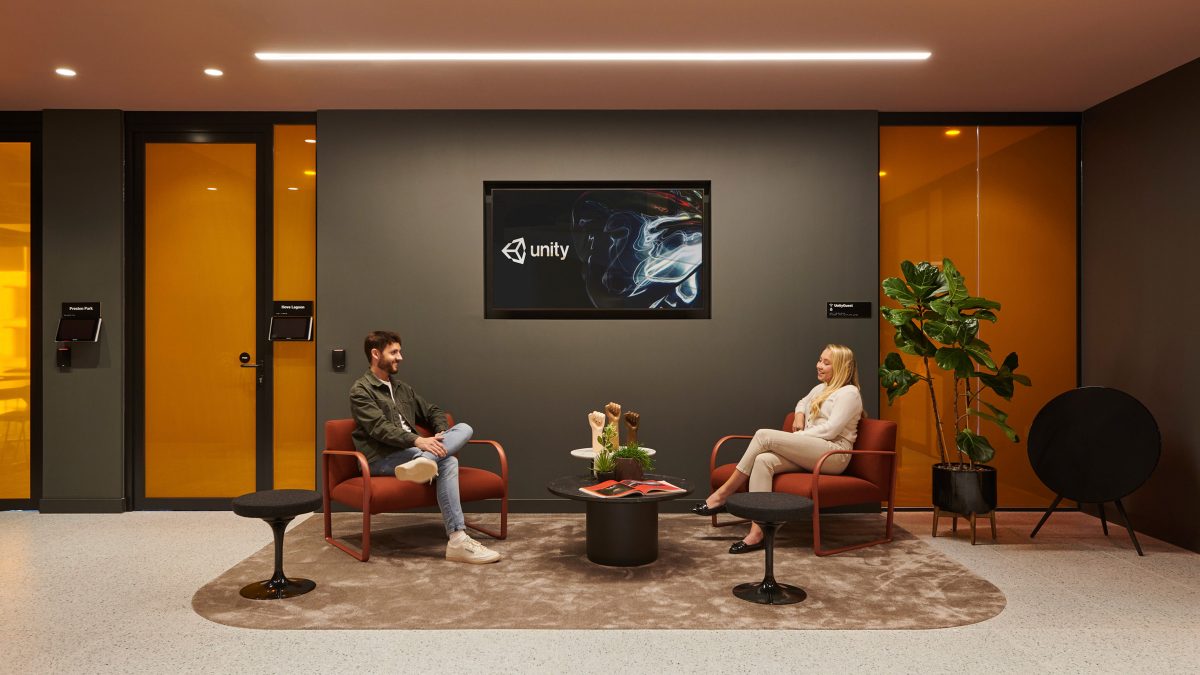
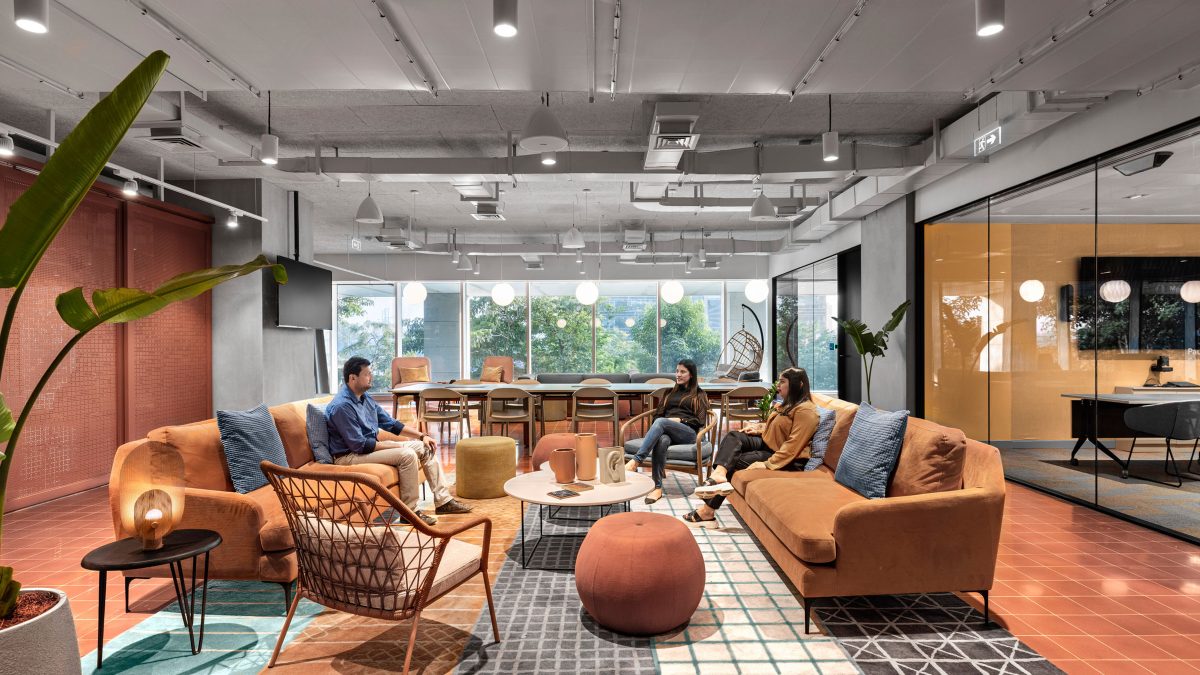
Not every collaboration space needs a separate room. A well-placed collaboration table within an open office allows employees to step away from their desks for quick discussions before returning to work. These tables also function well as extensions of teapoints, serving as social hubs during breaks and as meeting spots throughout the day.
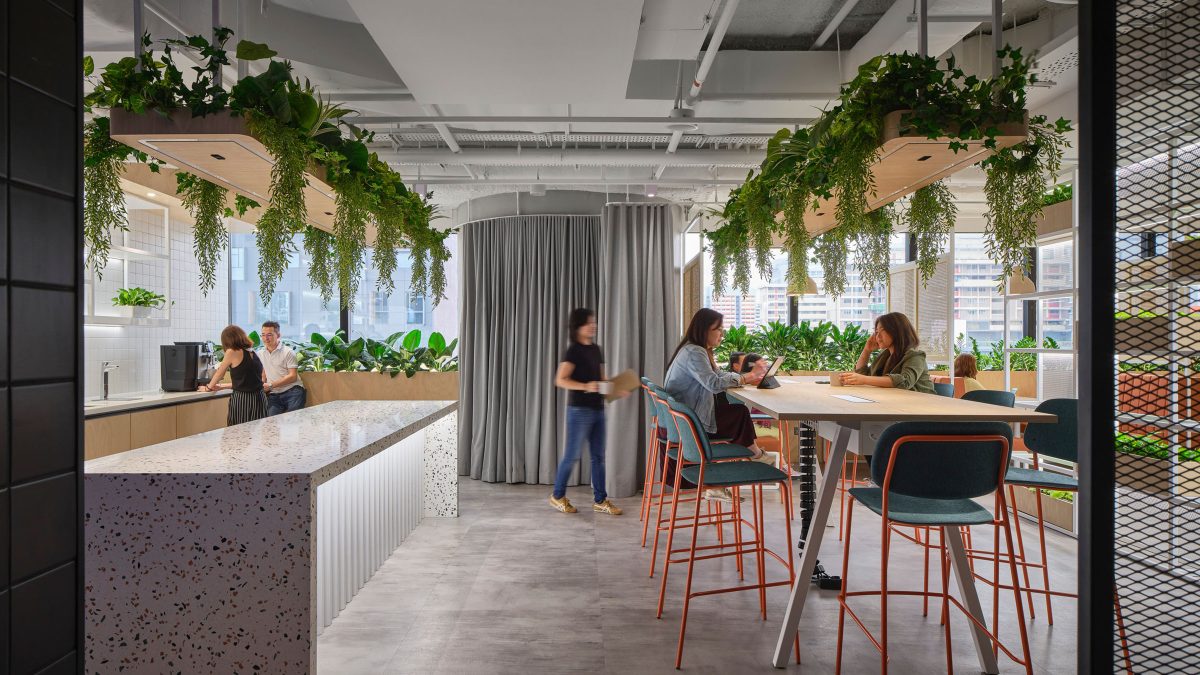
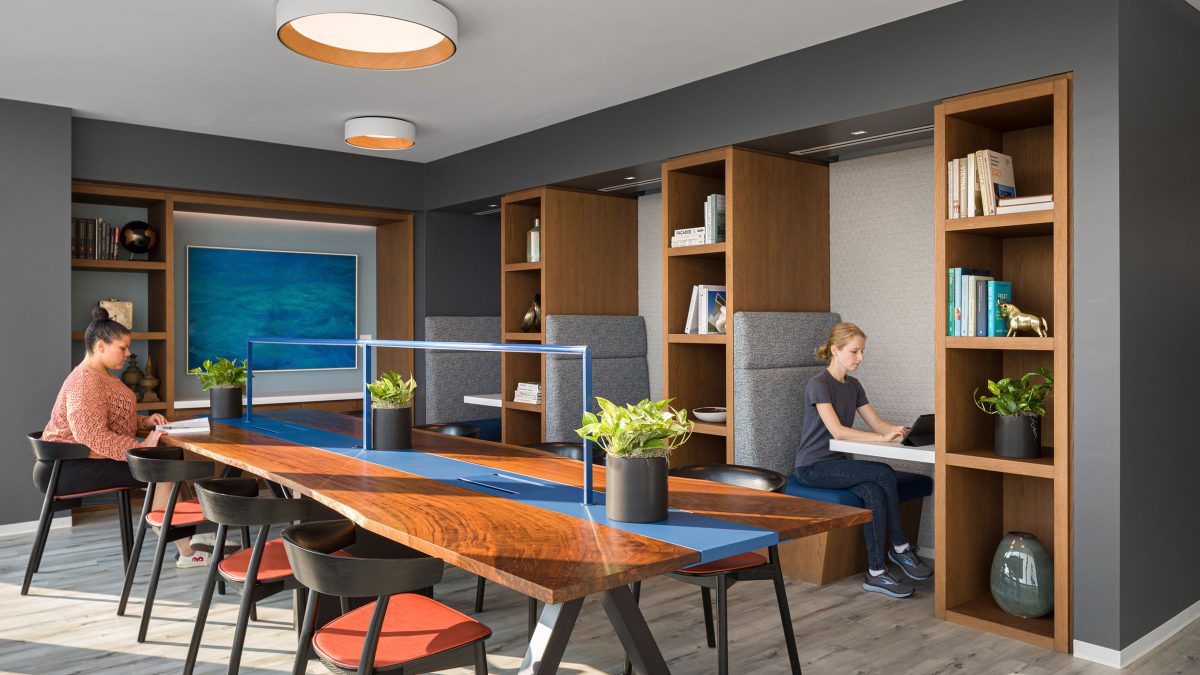
Project huddles are semi-private spaces where teams can brainstorm and make quick decisions. Typically accommodating 2 to 10 people, these zones have essential tools like whiteboards, post-it notes and flipcharts. Incorporating AV technology can make these spaces more versatile, especially for remote participants. Digital whiteboards can further enhance engagement by ensuring everyone is actively involved.
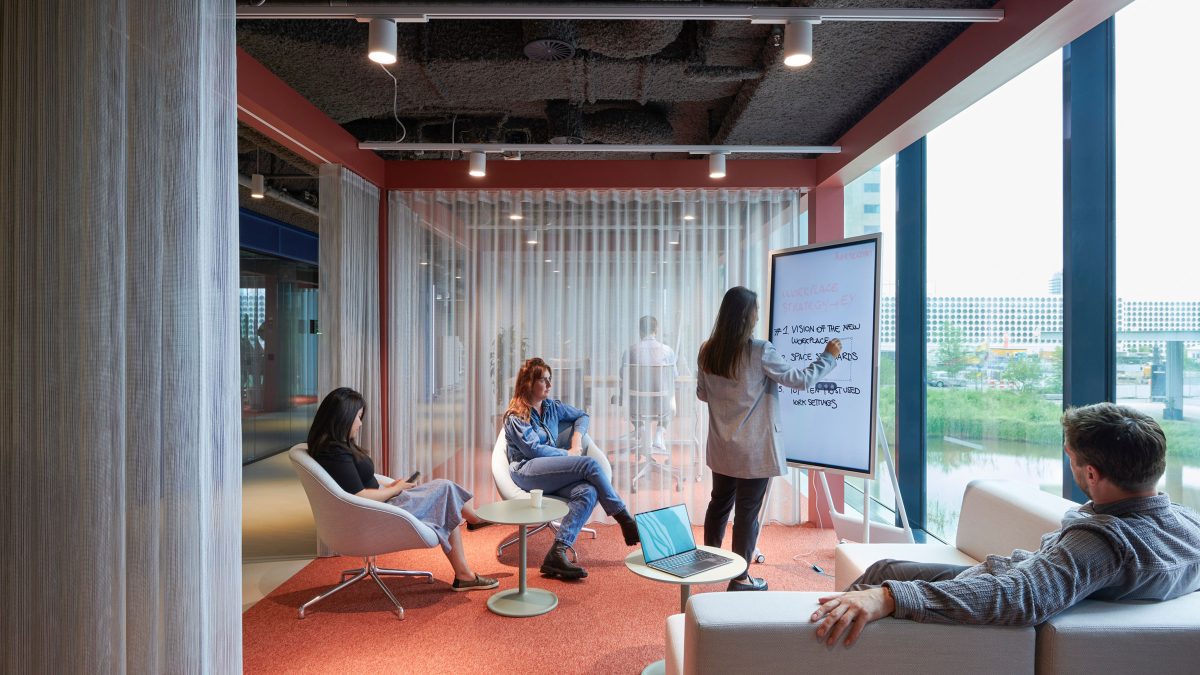
Booth seating provides a semi-enclosed environment that naturally makes people feel secure, promoting open communication and idea sharing. Booths are multifunctional, suitable for focused work, private meetings or workplace collaboration. Their versatility makes them a valuable addition to any office.
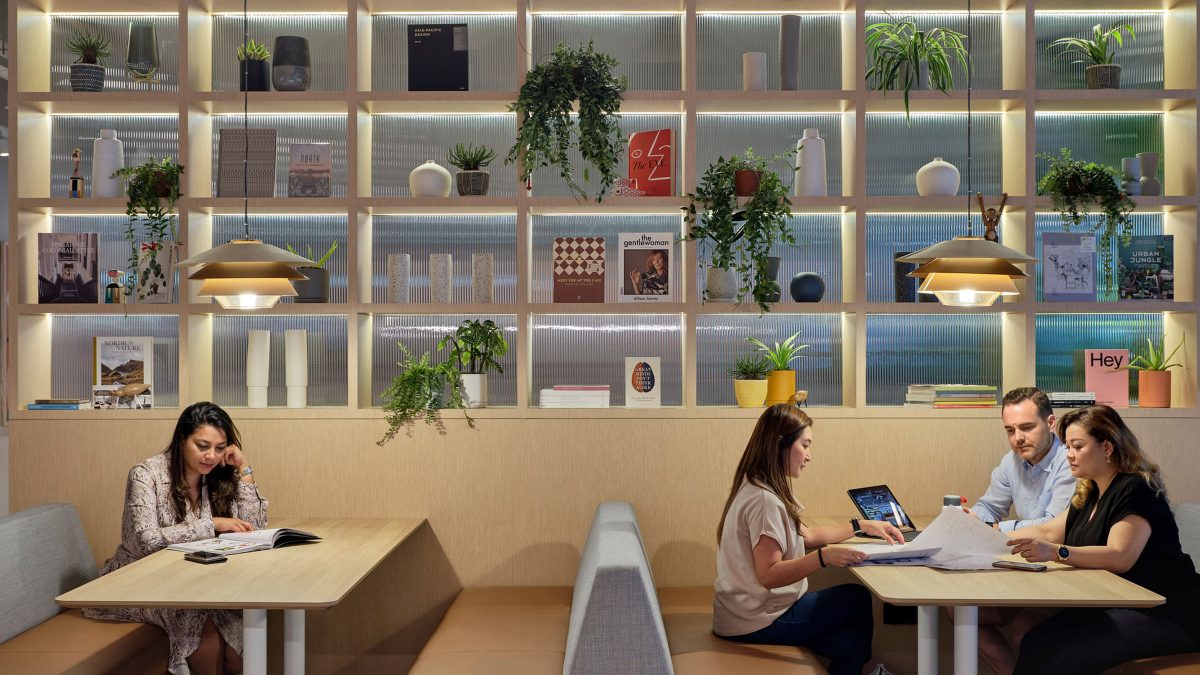
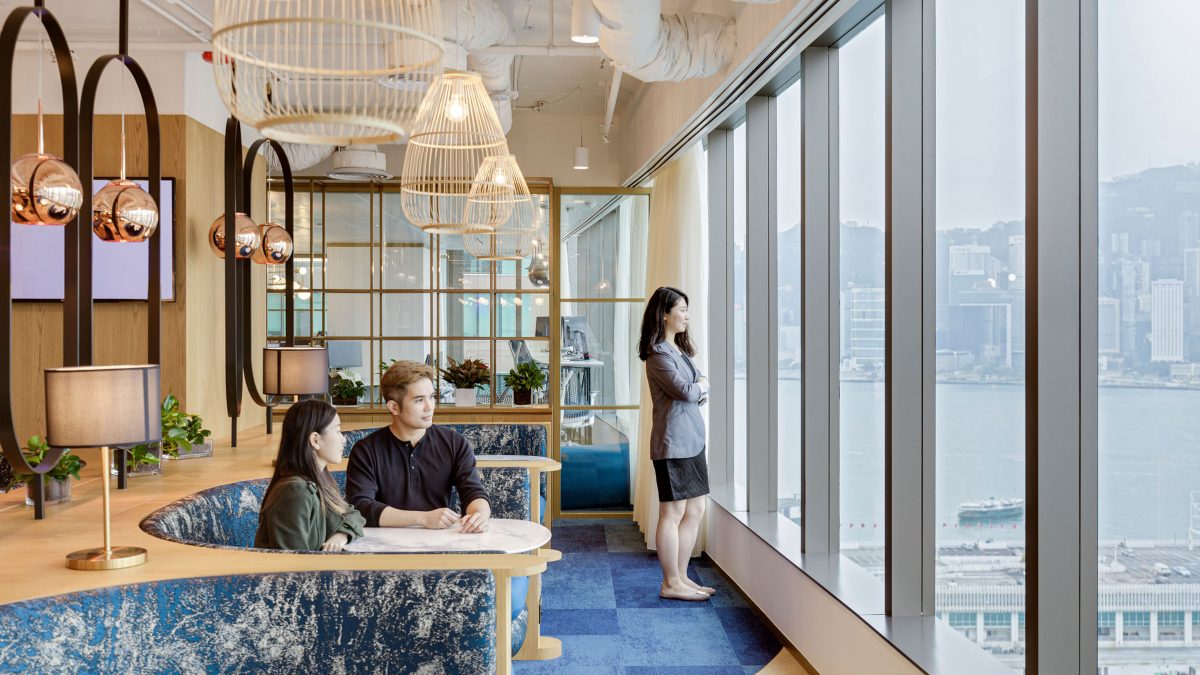
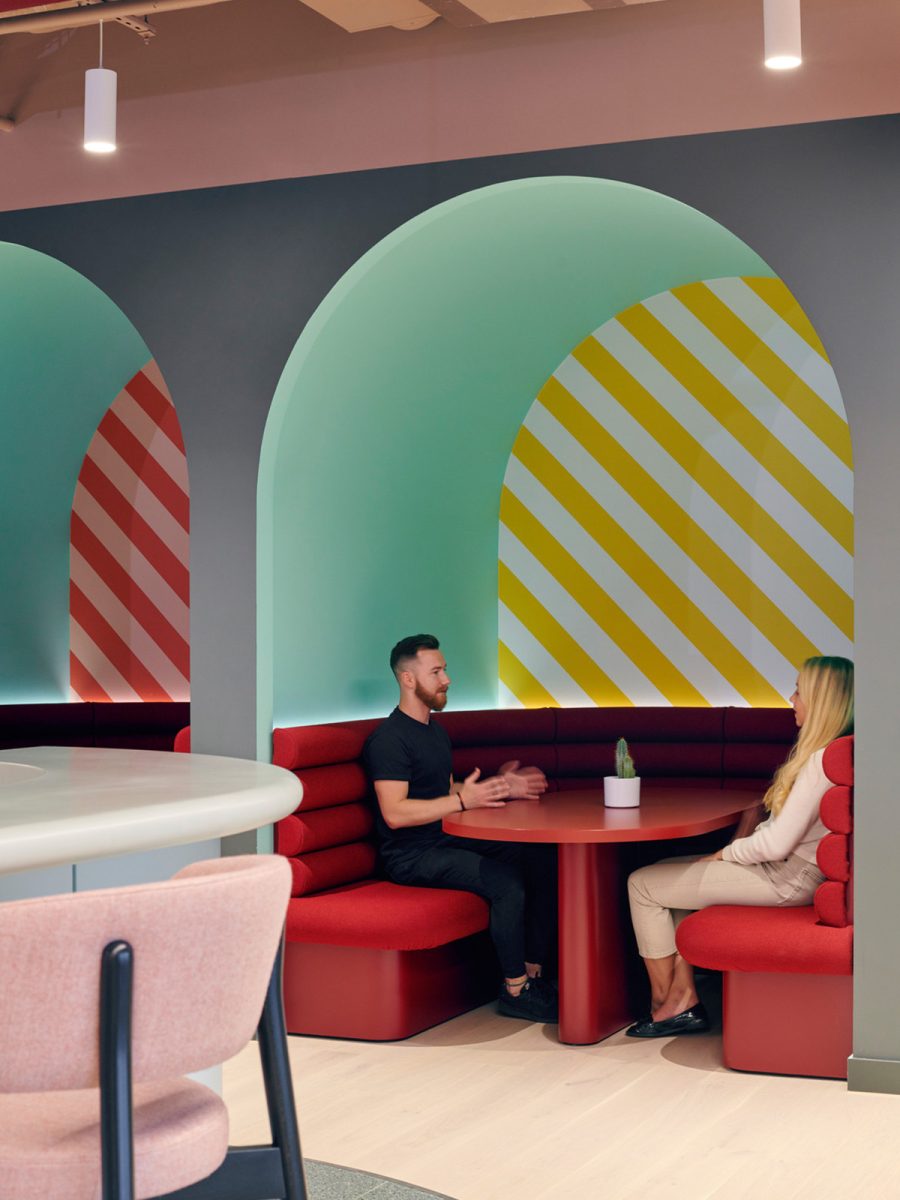
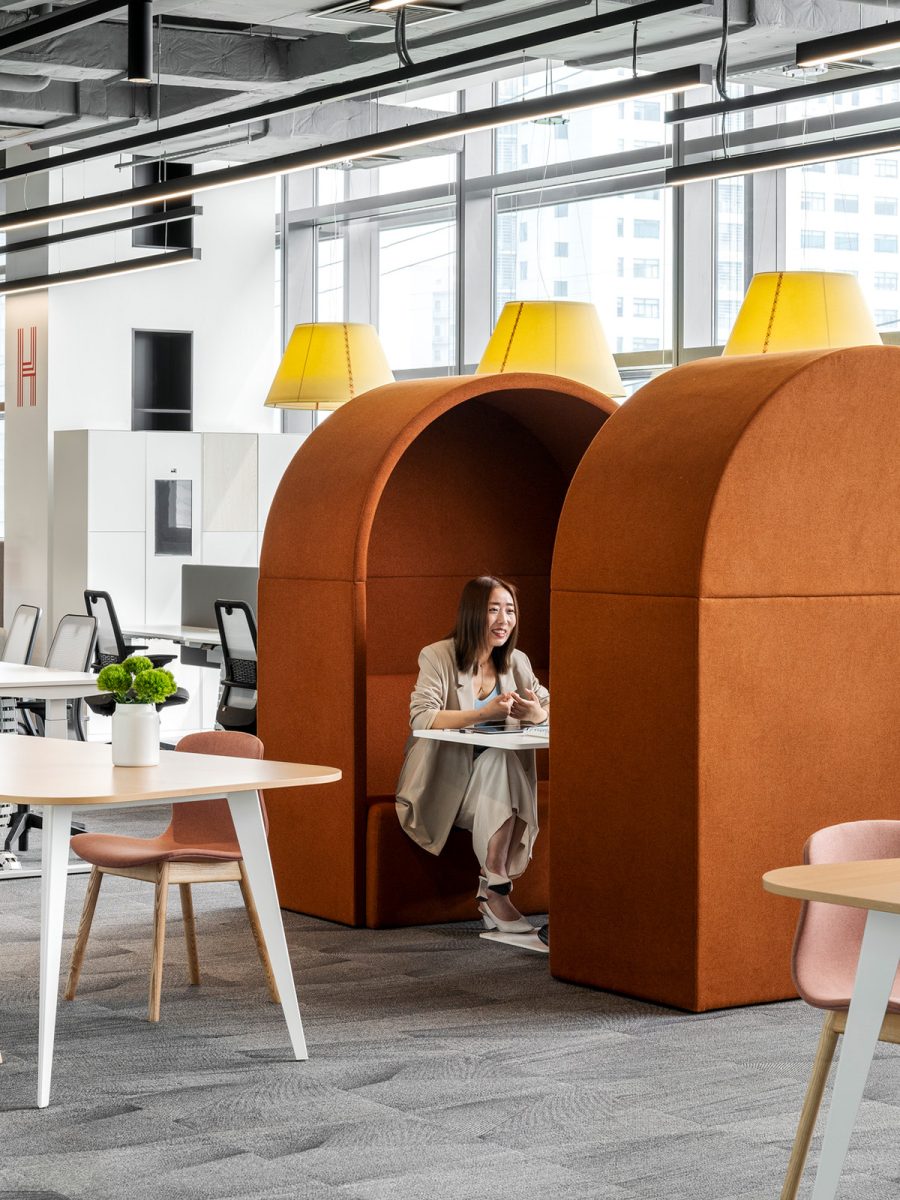
Meeting rooms are essential collaboration spaces in any office. Designed with ergonomics, technology and privacy in mind, they are crucial components of any office setup. When considering office design ideas for meeting rooms, consider the required level of formality and choose finishes and decor accordingly. High-quality AV equipment is necessary for hybrid meetings, while good airflow and temperature control are vital for comfort and productivity.
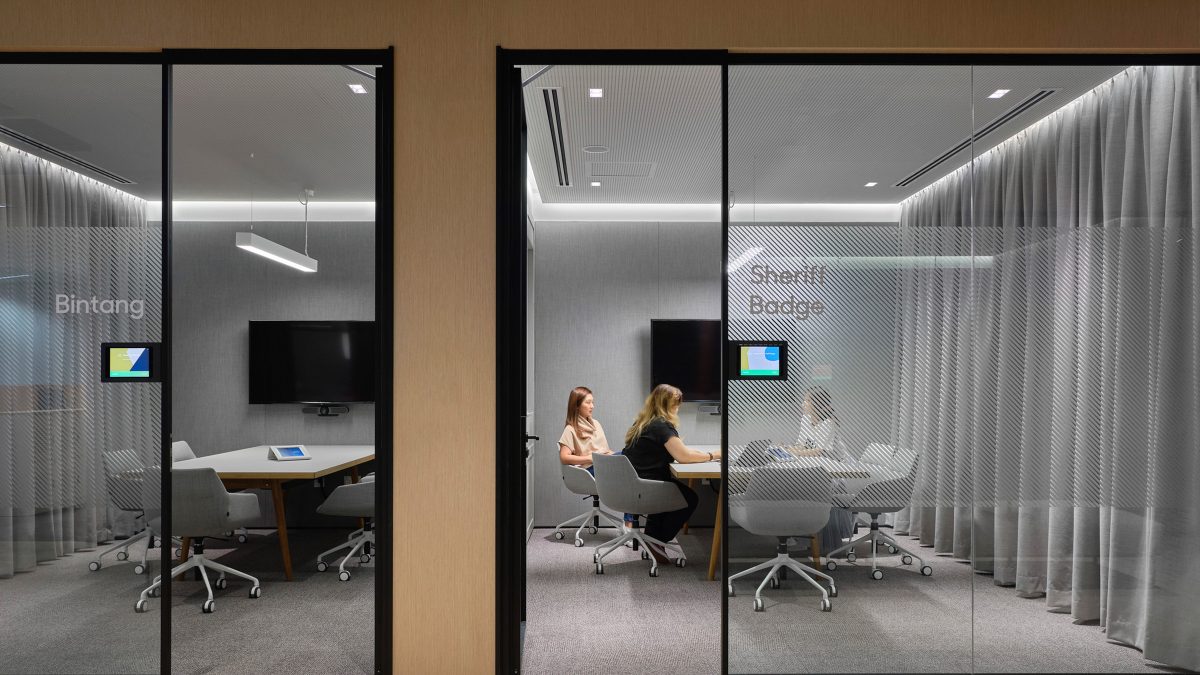
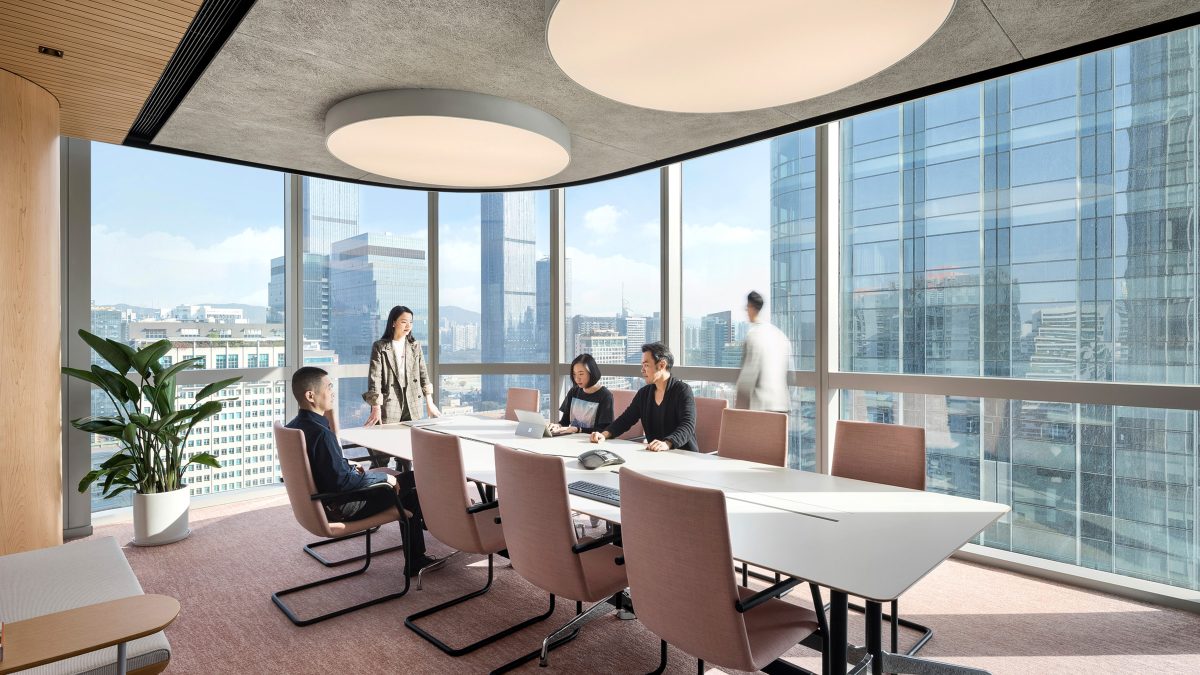
Boardrooms are designed to make an impact, hosting important meetings with key stakeholders. Therefore, the specification, design and comfort of these rooms are crucial. Technology that seamlessly connects remote participants is also essential. When developing office design ideas for boardrooms, consider how movable walls can expand the space for events or breakout sessions. Proper air circulation is also important to maintain alertness and engagement during long meetings.
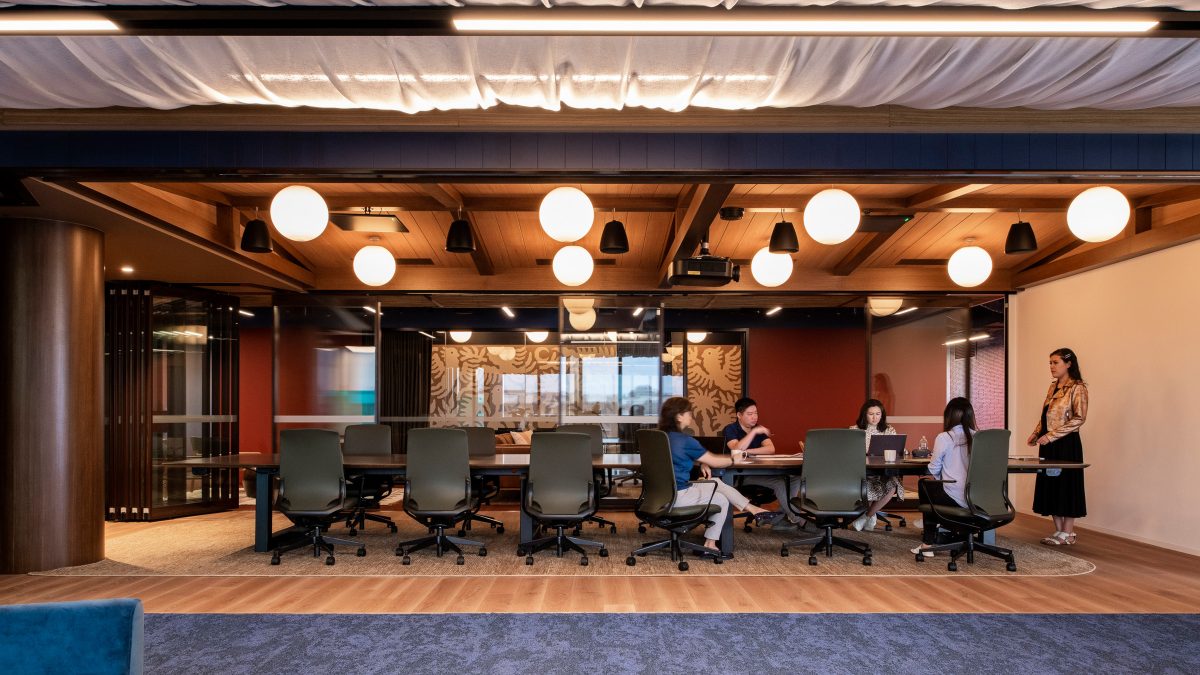
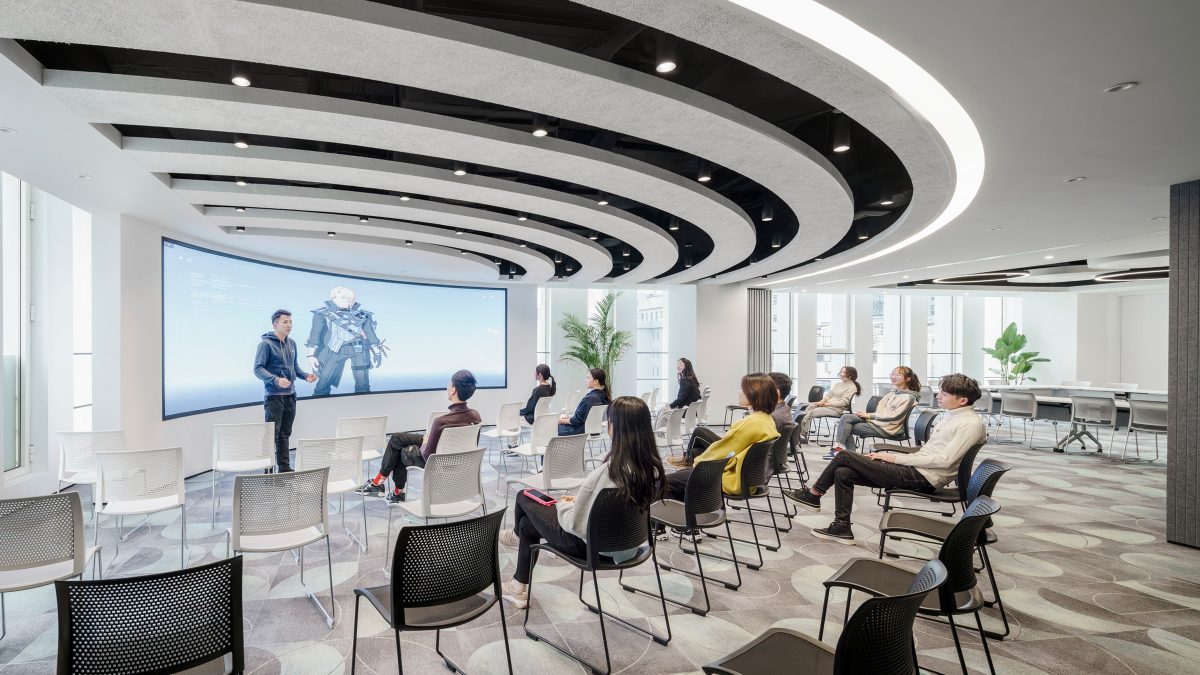
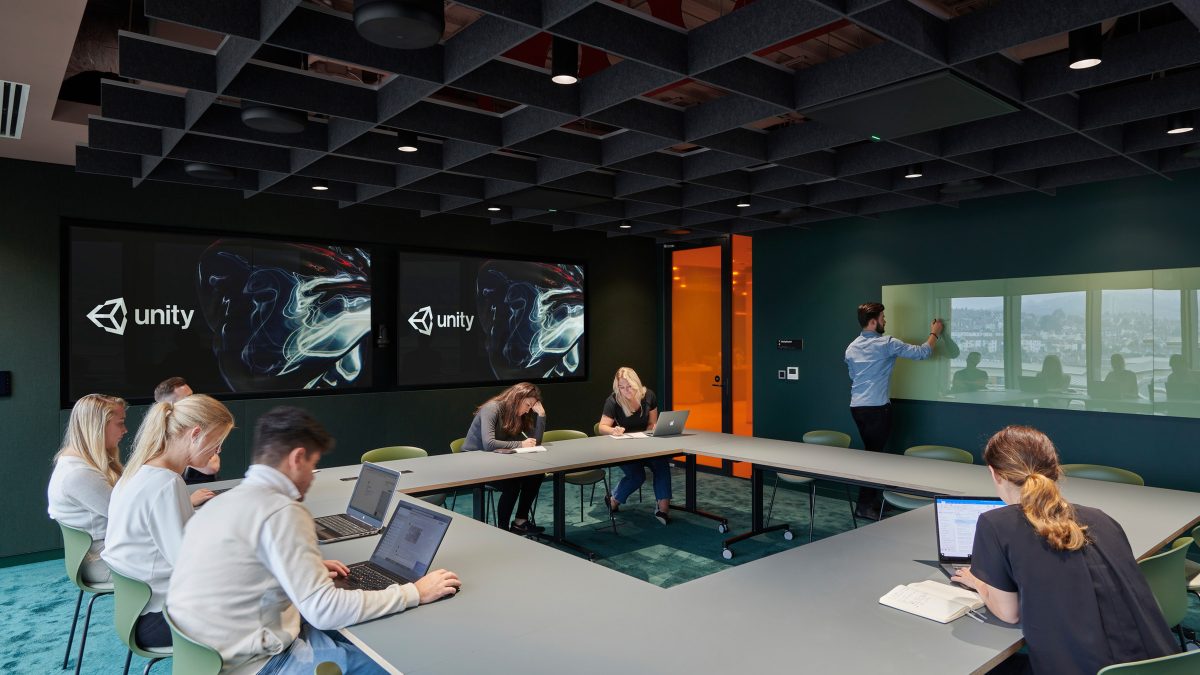
A quiet retreat space is essential for mental health. Chillout zones offer a tranquil environment away from the office’s busy areas, allowing employees to recharge and return to work feeling refreshed. Soft lighting, comfortable furnishings and soundproofing are key elements in creating a peaceful atmosphere, making them an important part of any London office design.
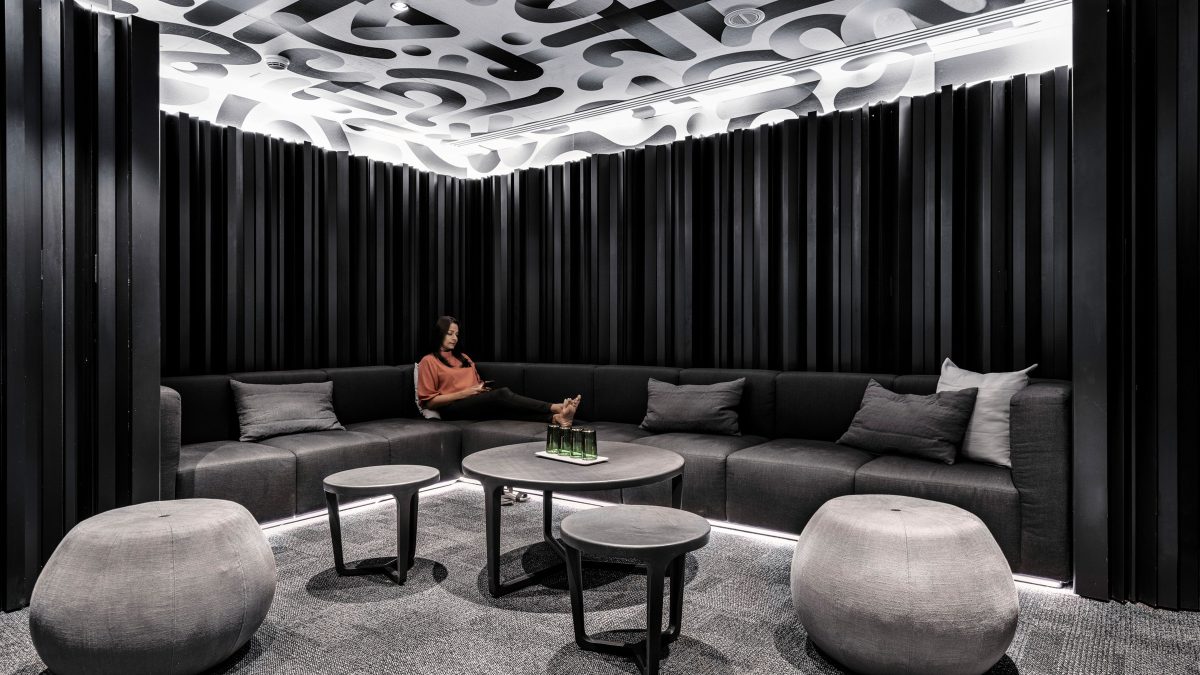
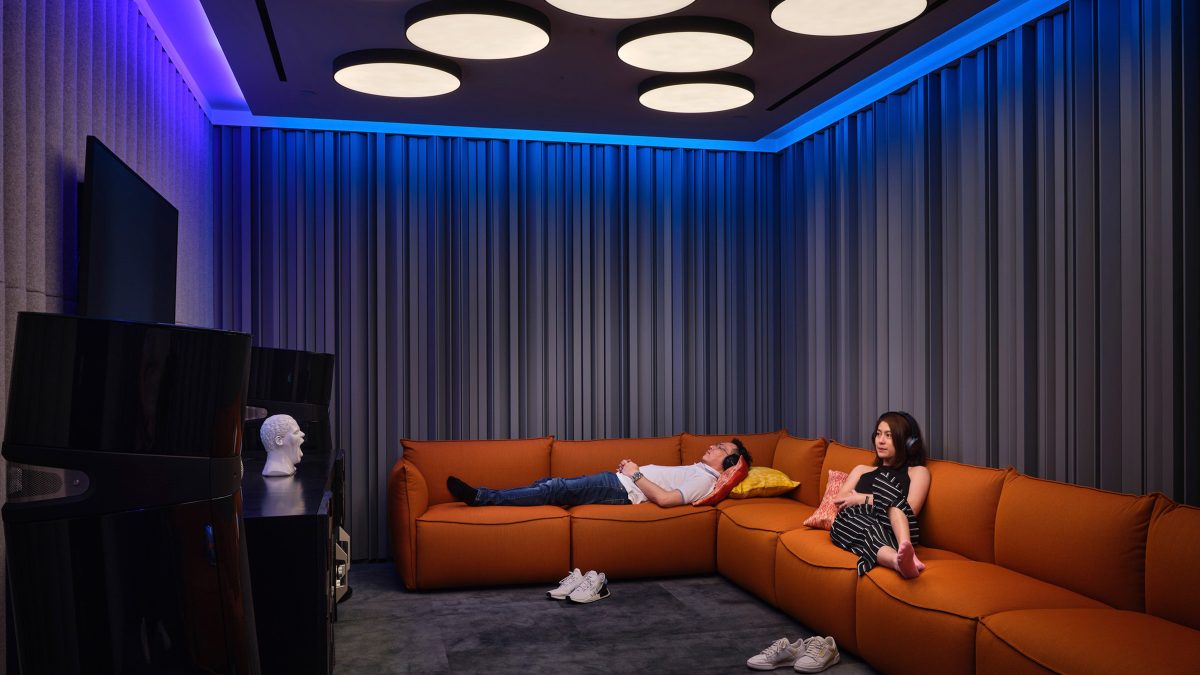
Our office design ideas for collaborative workspaces focus on variety and adaptability. There’s no one-size-fits-all solution; the goal is to provide enough options to meet diverse team needs.
When choosing a collaboration space for your next meeting, consider:
Our team of interior designers in London is ready to help you develop and refine your office collaboration space ideas. Contact us today to start the conversation.